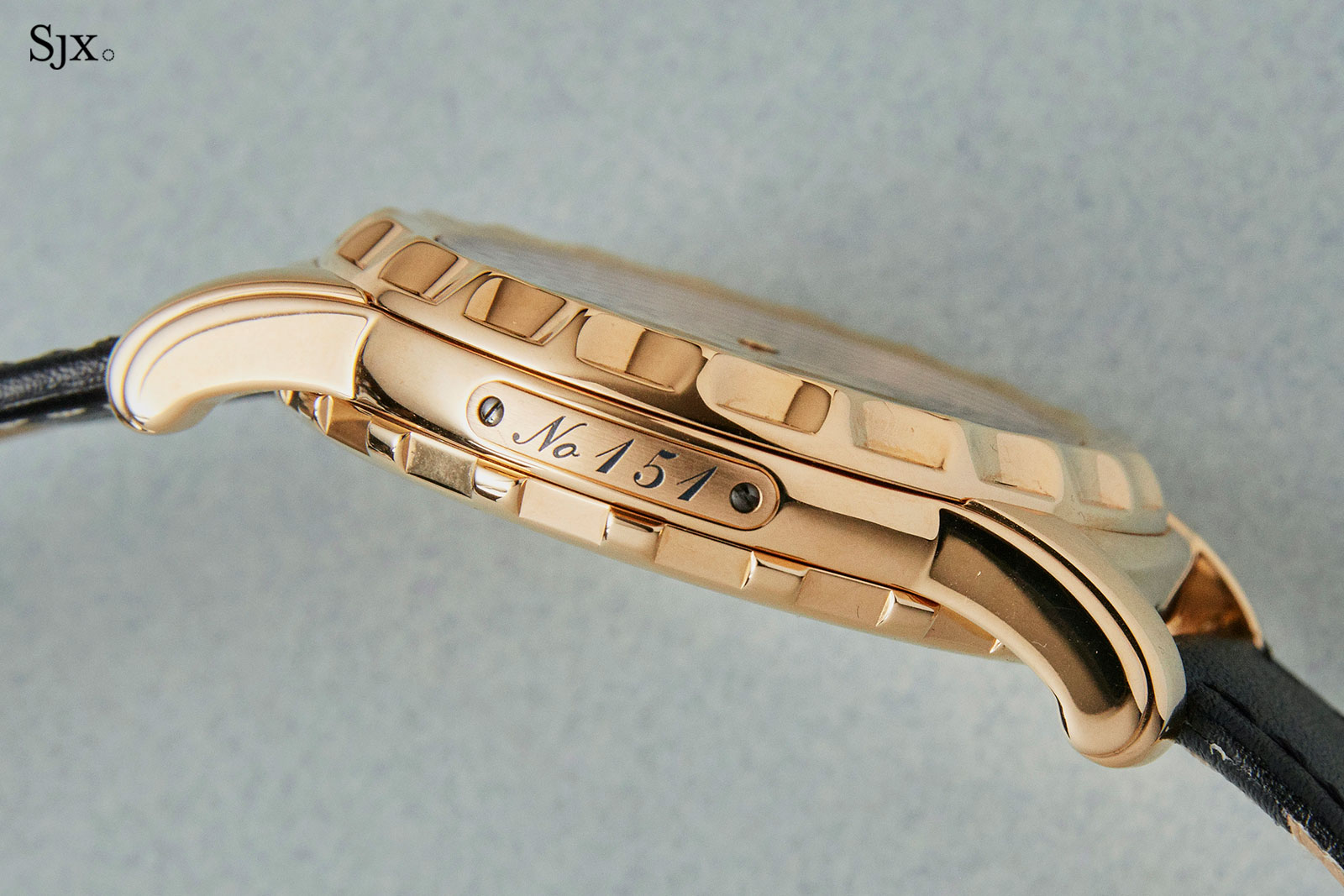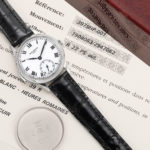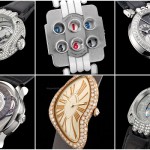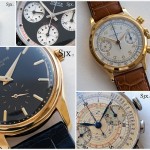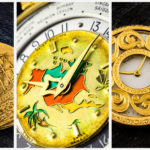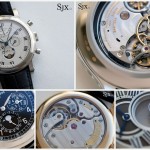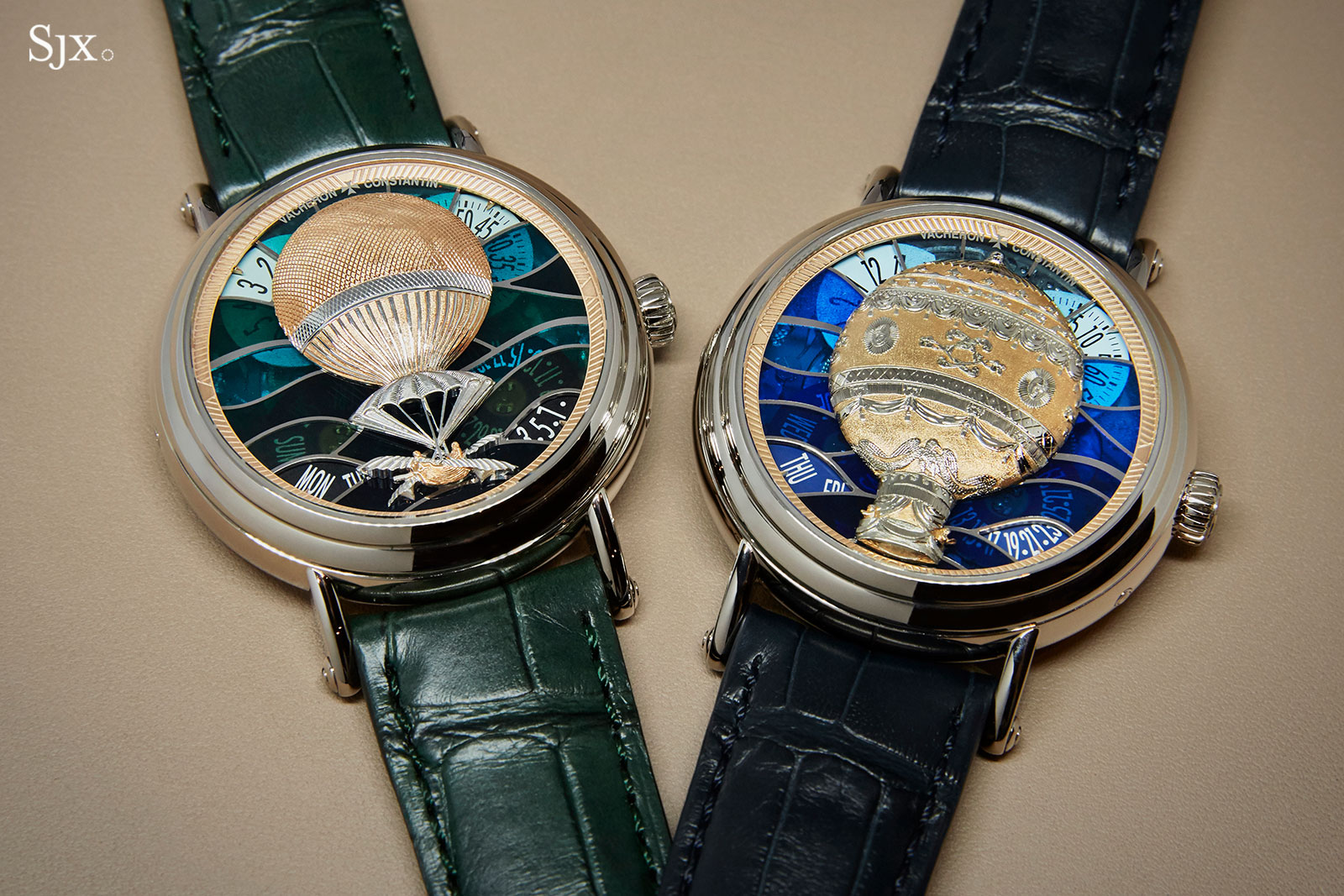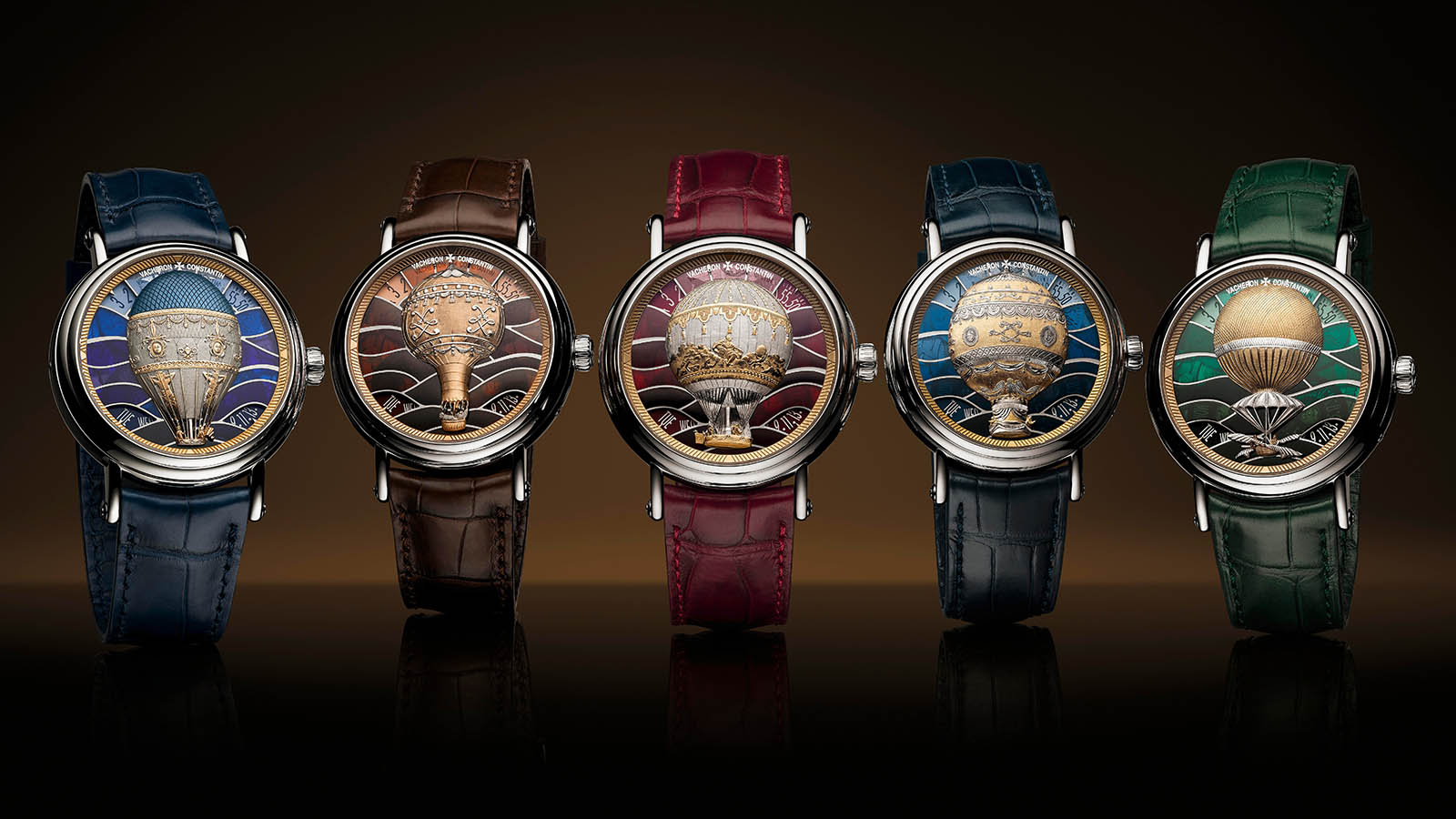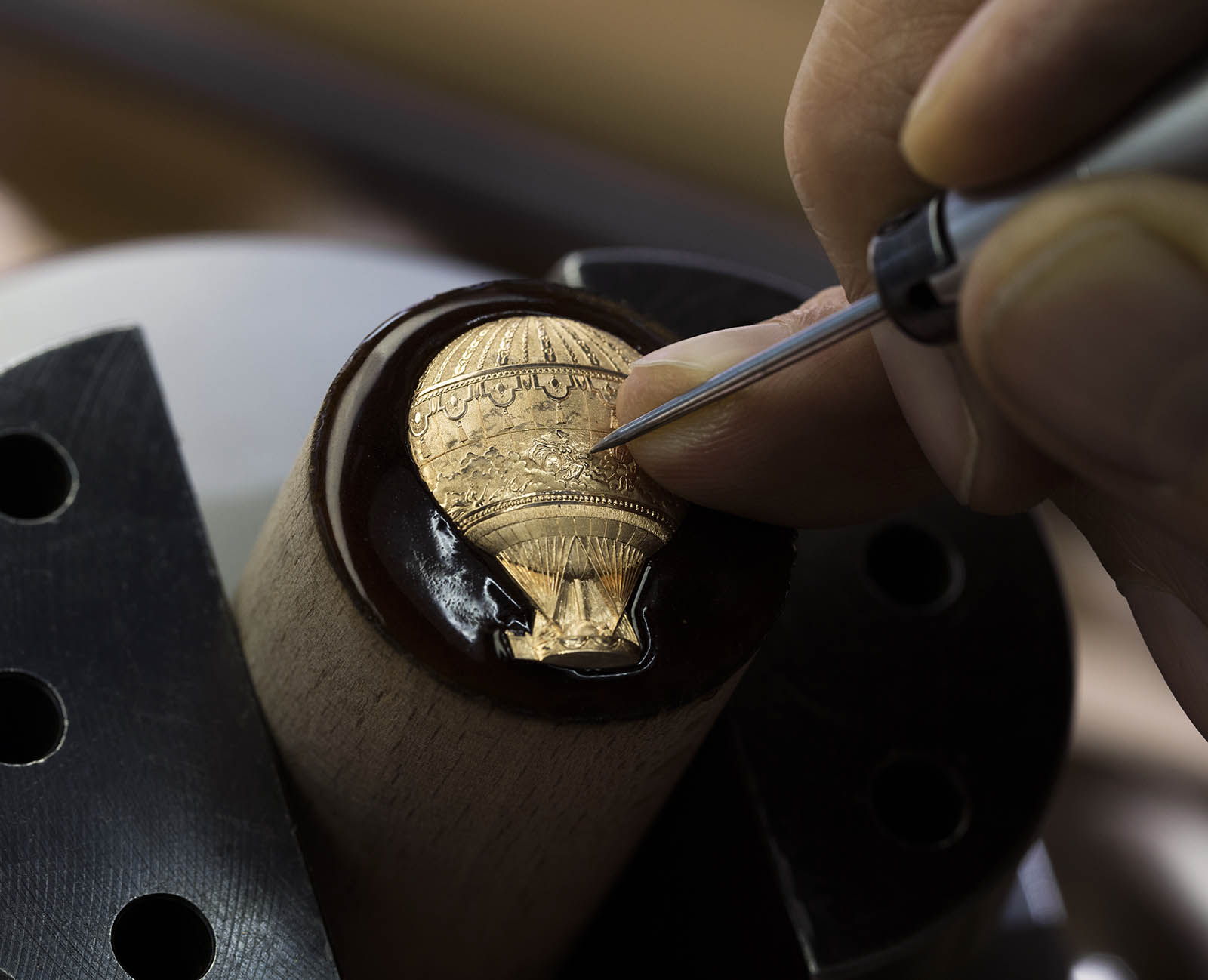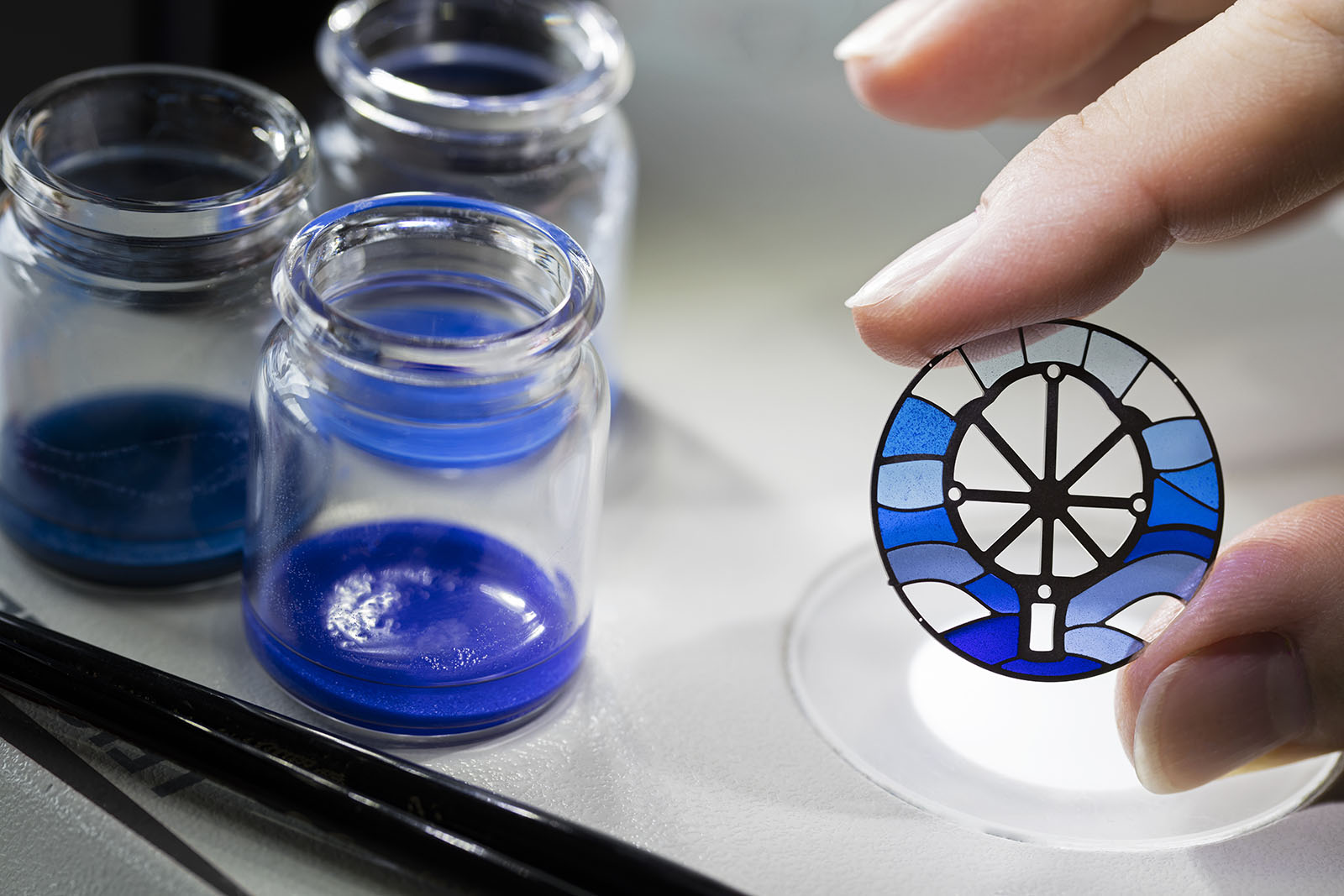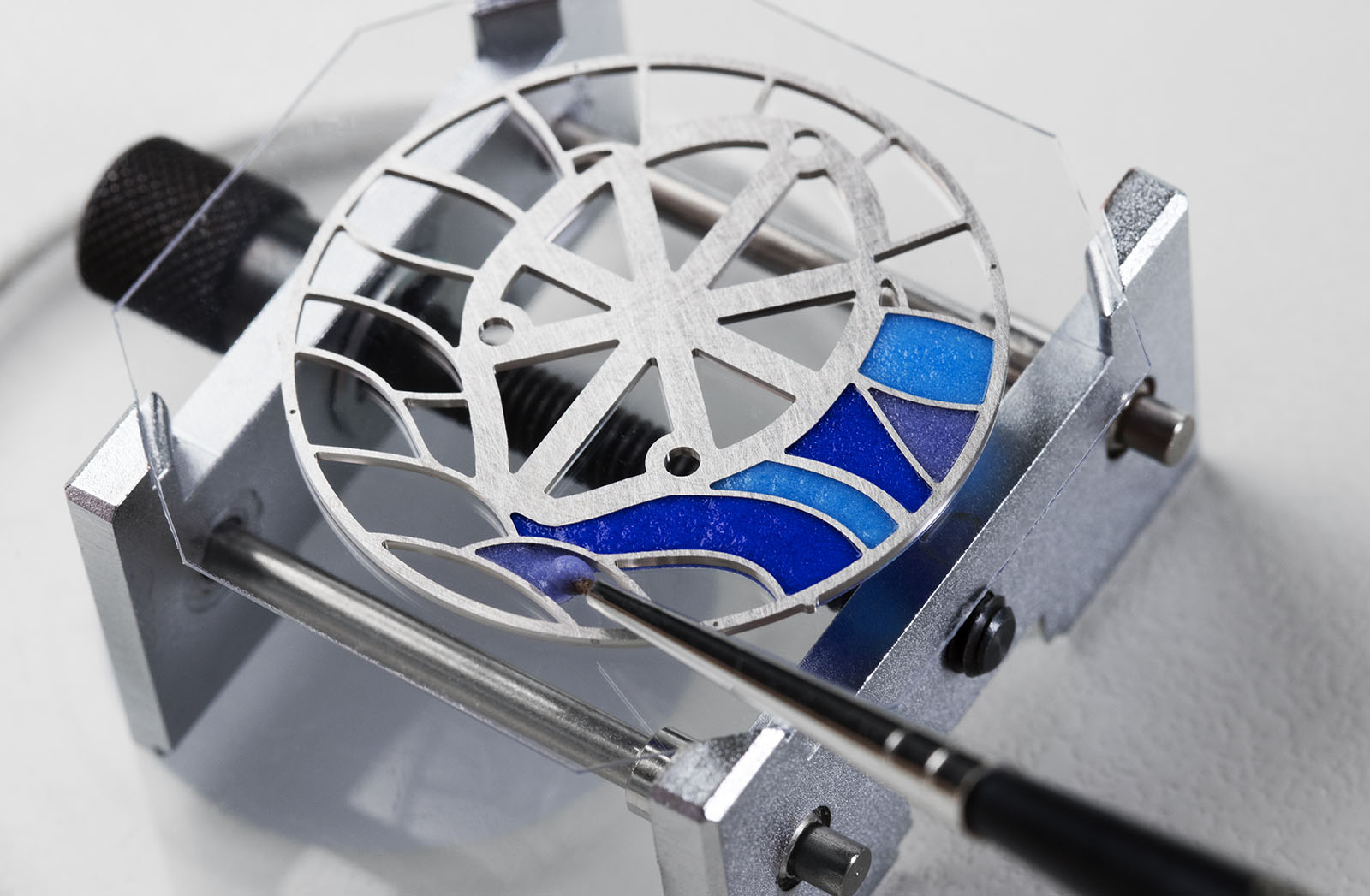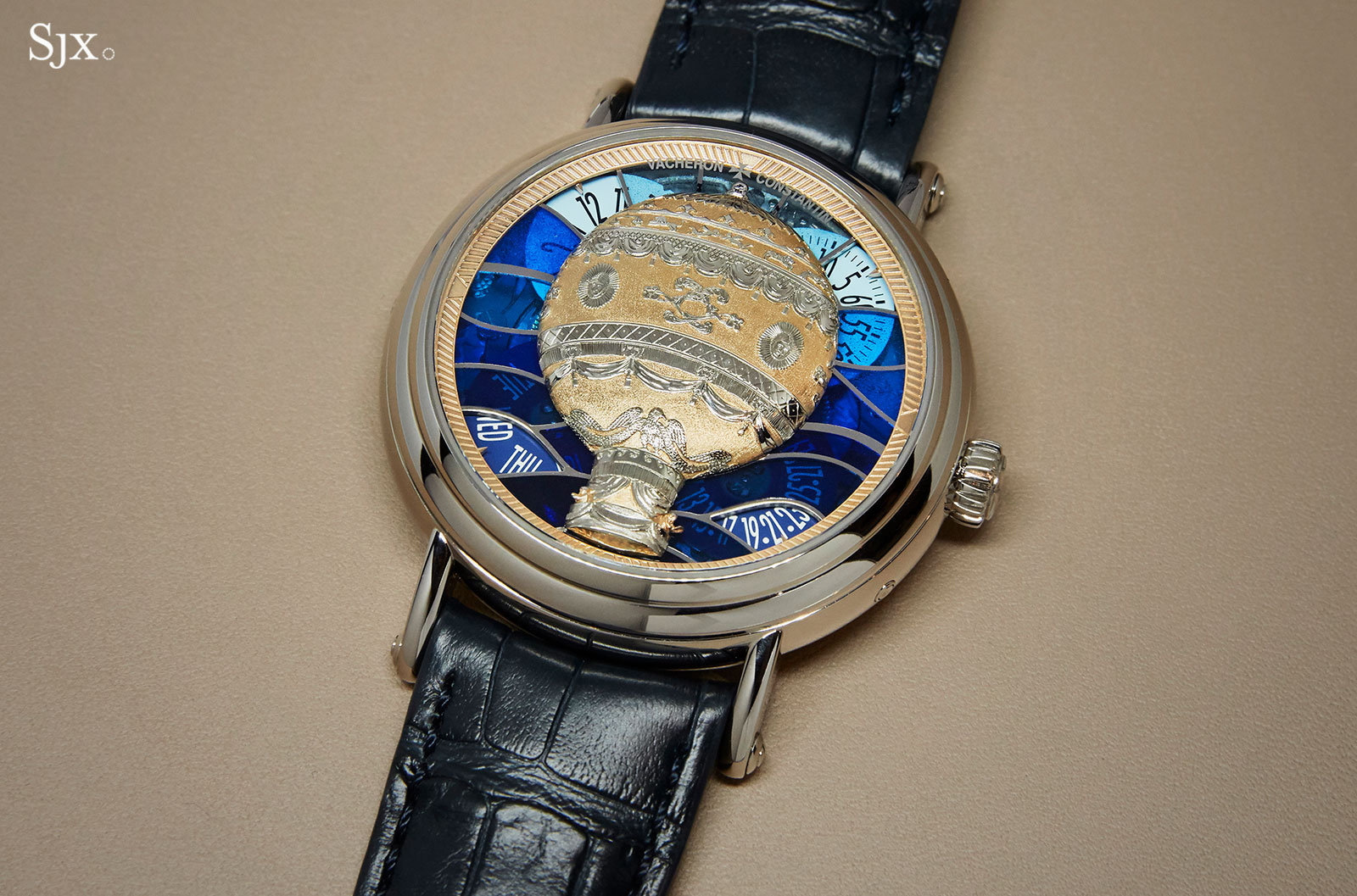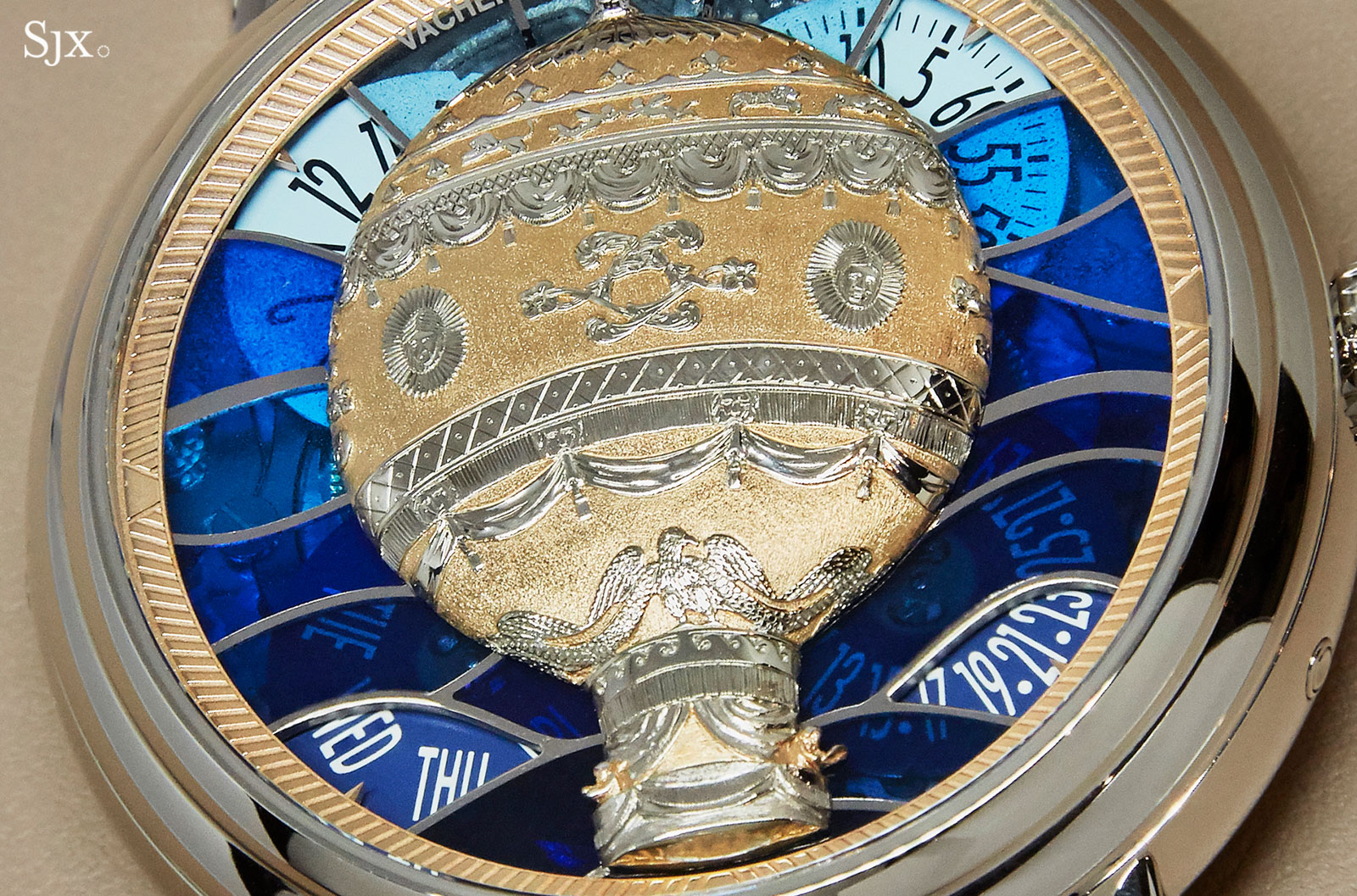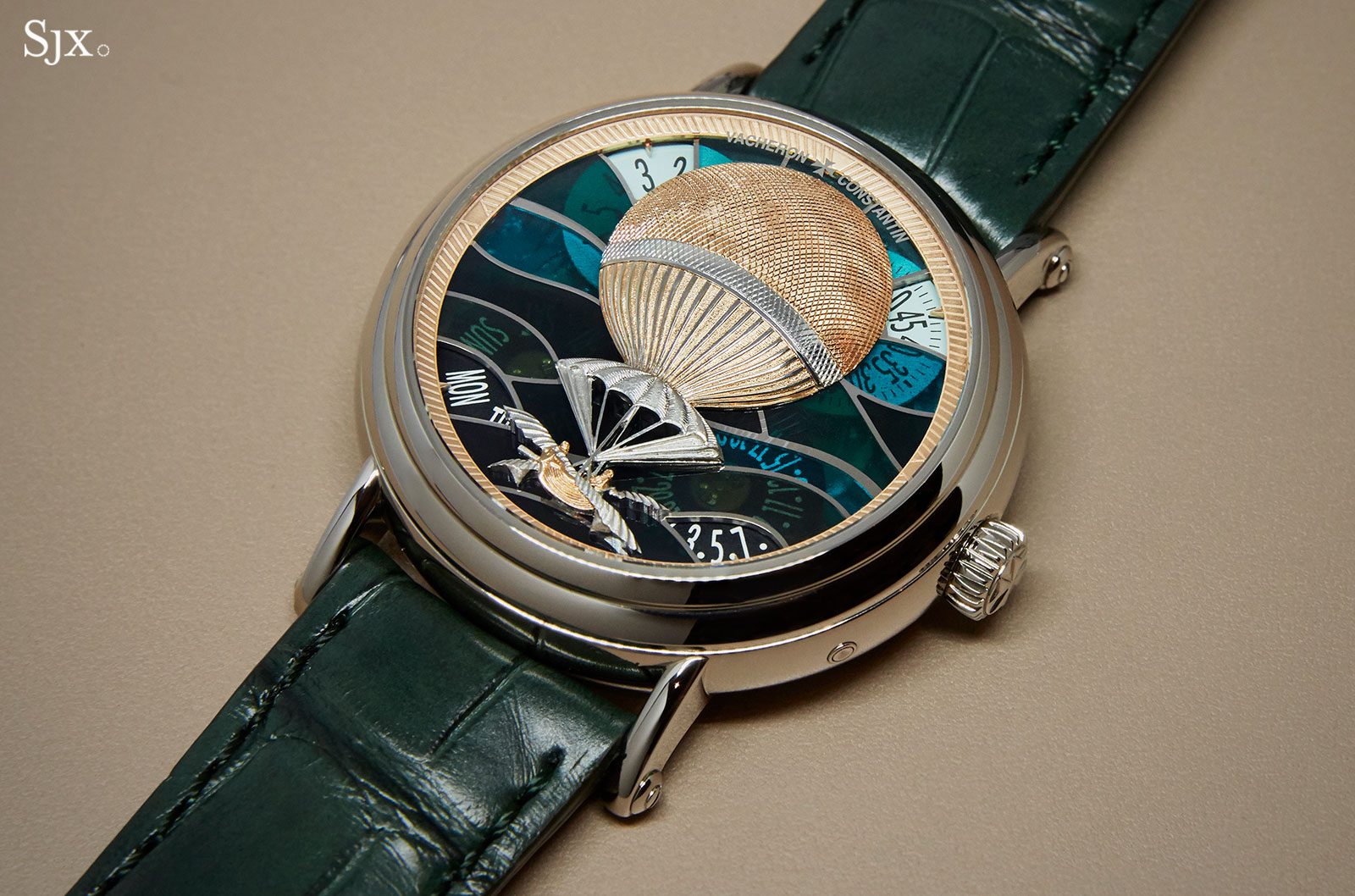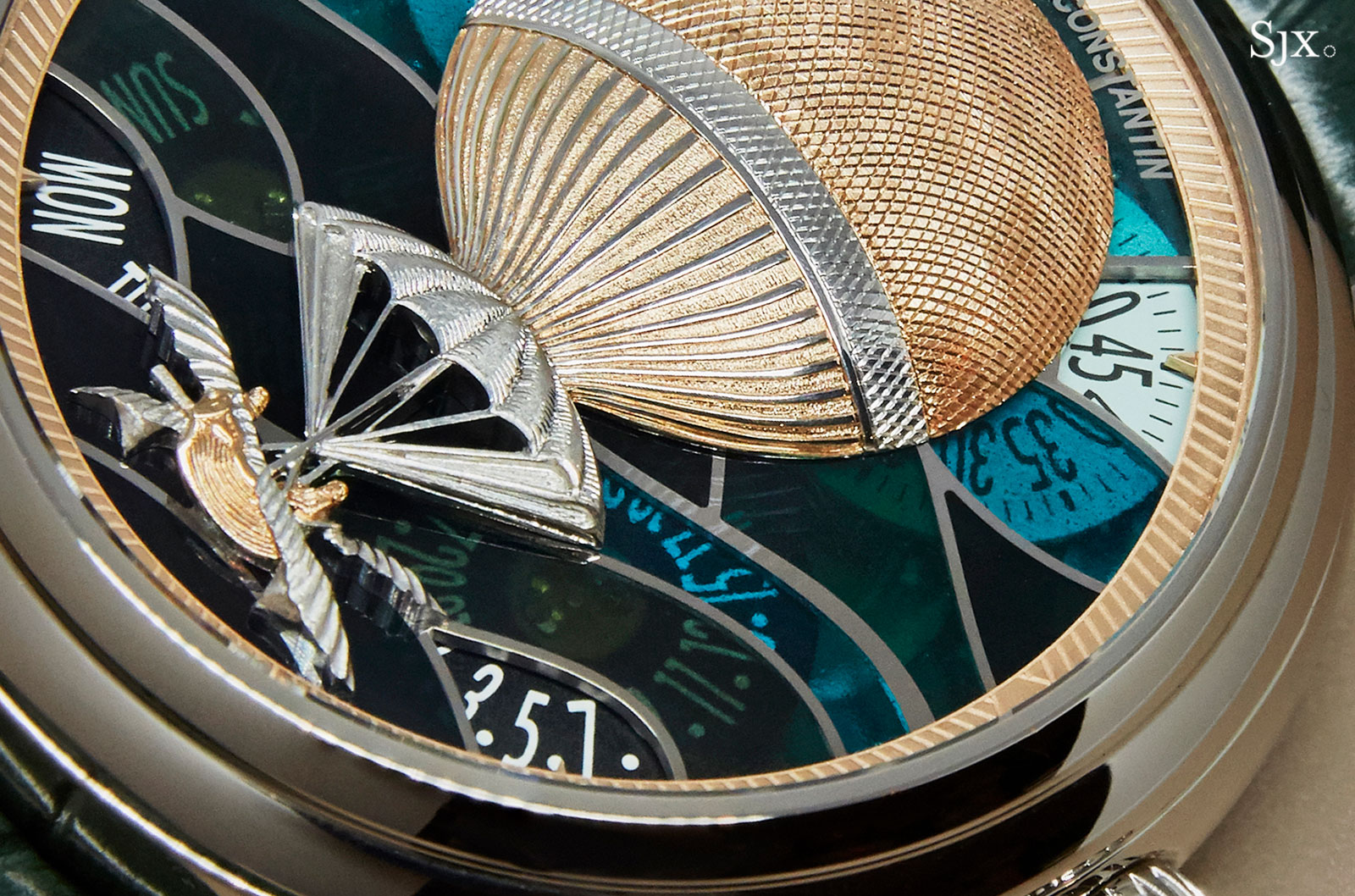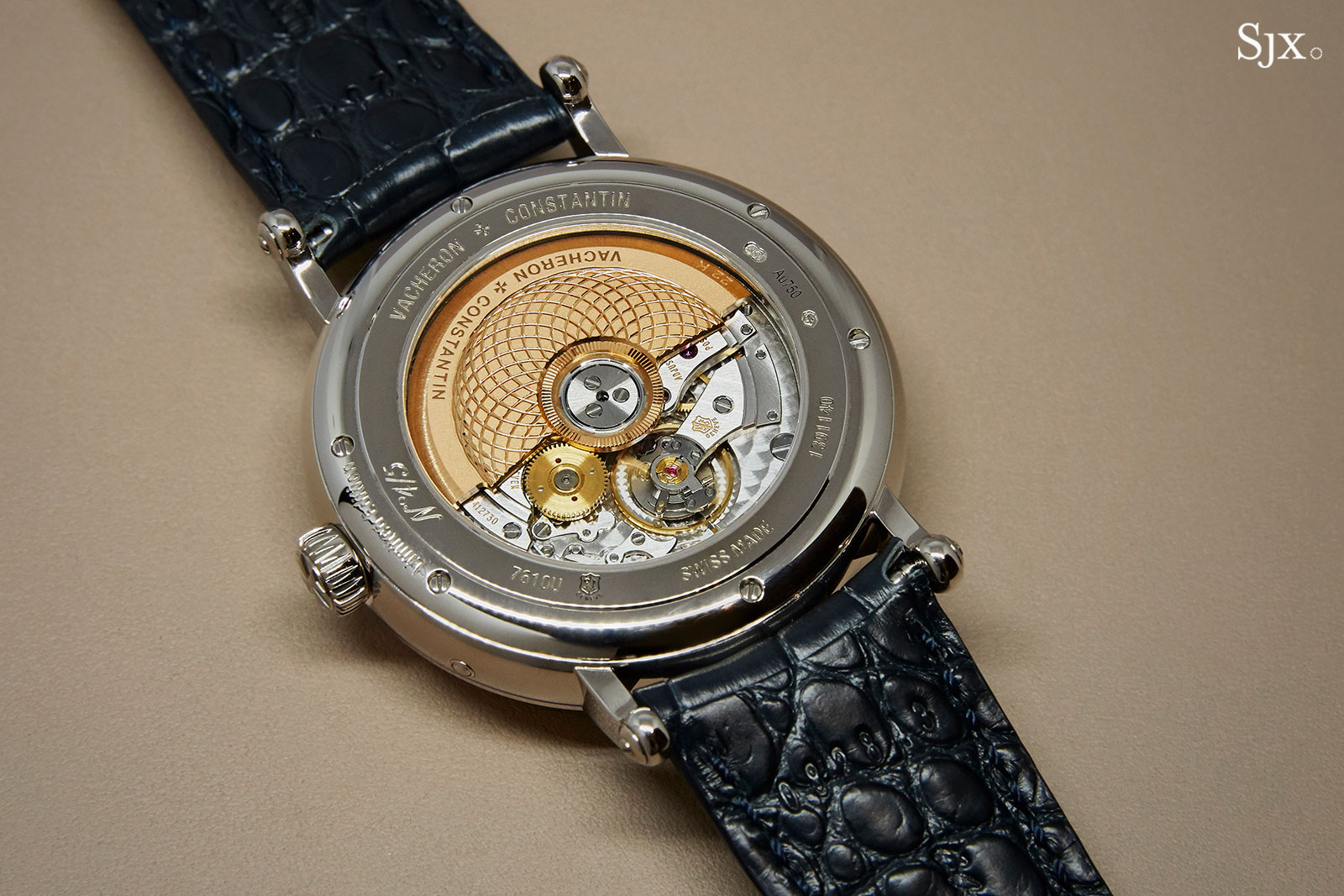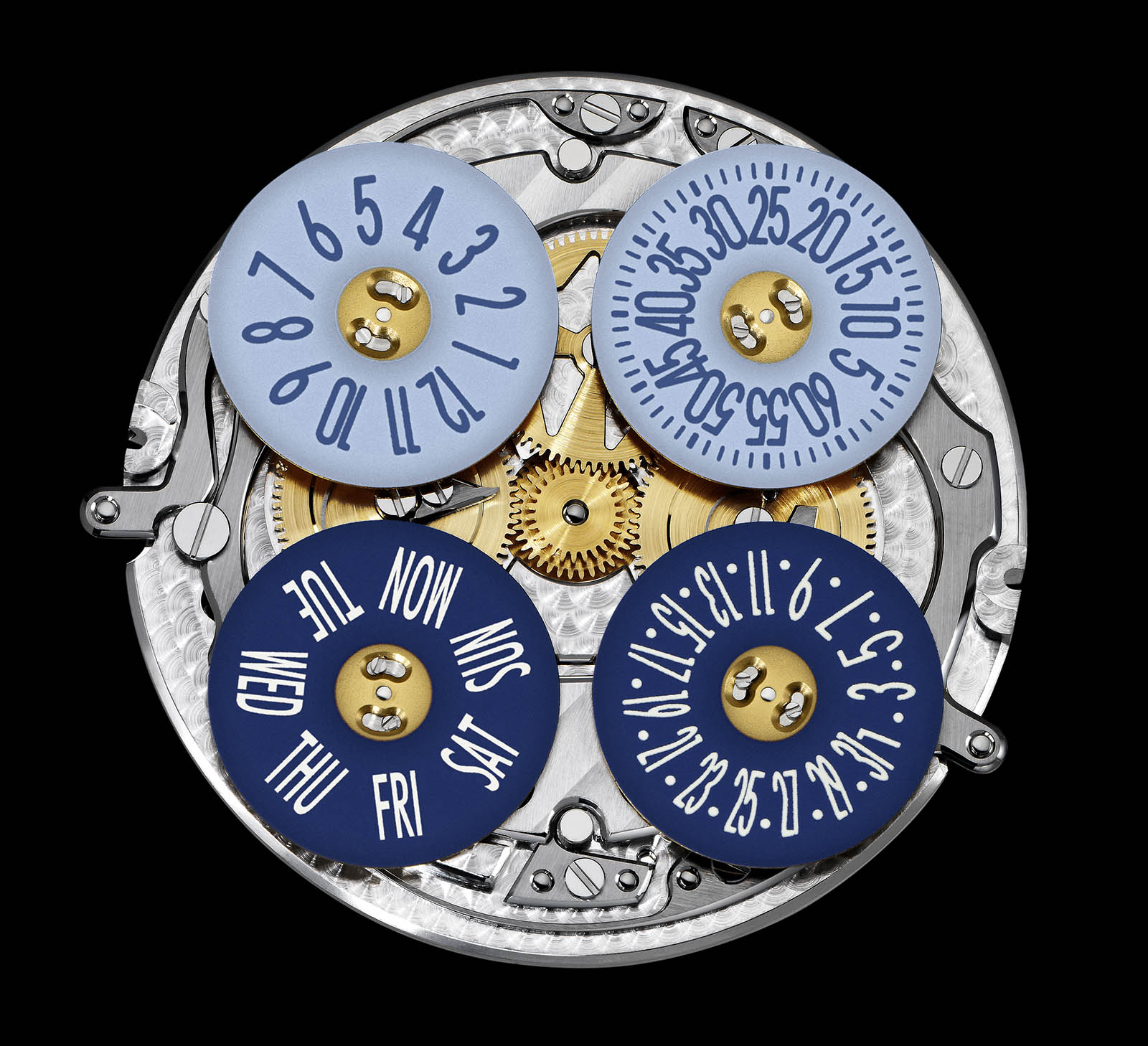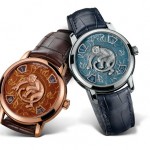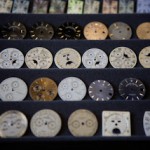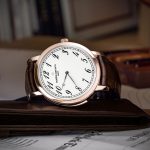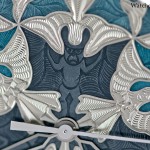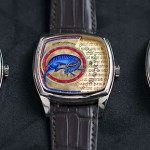Hands-On with Top Picks at Christie’s Hong Kong Watch Auction
From value-proposition high-comps to notable independents.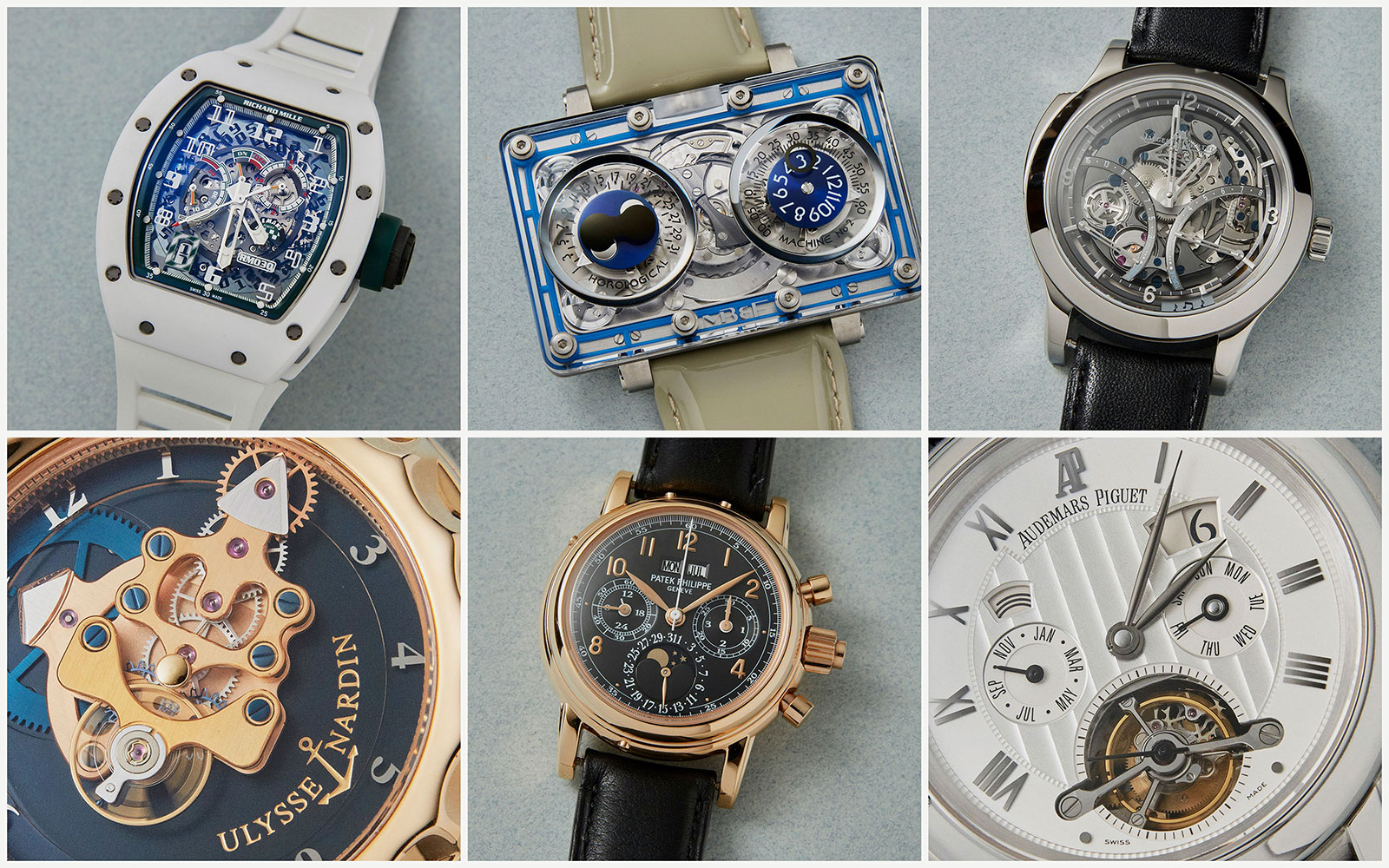
With the Geneva auction season still visible in the rearview mirror the Hong Kong spring auctions are already on the horizon. They take place at the end of May, with Christie’s offering over 300 lots.
As is typical of a Hong Kong auction, the sale is an opportunity to pick up great contemporary watchmaking at compelling prices. The catalogue overall is a mix of modern and vintage timepieces, but with a larger proportion of recent watches. It includes a strong offering of modern complications – like the Audemars Piguet Cabinet series – and independent watchmaking from Urwerk to a sapphire MB&F.
The auction happens on May 28 and the full catalogue is available here.
Lot 2290 – Ulysse Nardin Freak 1
A historically important watch in many ways, the Ulysse Nardin Freak was the first wristwatch with silicon movement components to hit the market, almost a generation ago, back in 2001.
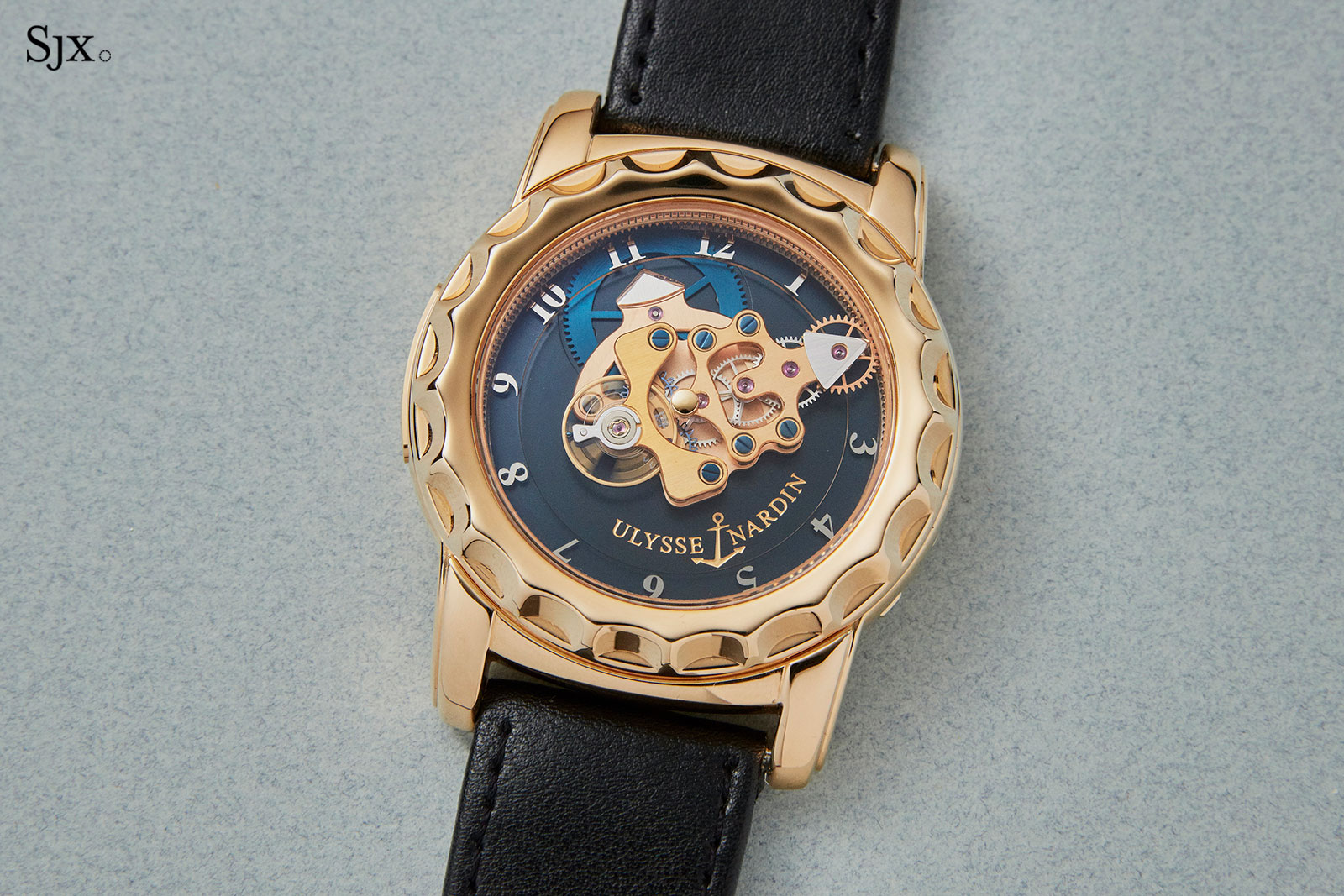
Not only was it notable in technology, the movement construction – invented by Carole Forestier and then perfected by Ludwig Oechslin – is ingenious. The movement (regulator, wheel train and bridges) doubles up as the minute hand, while the giant mainspring takes up most of the space inside the case, giving it a weeklong power reserve.
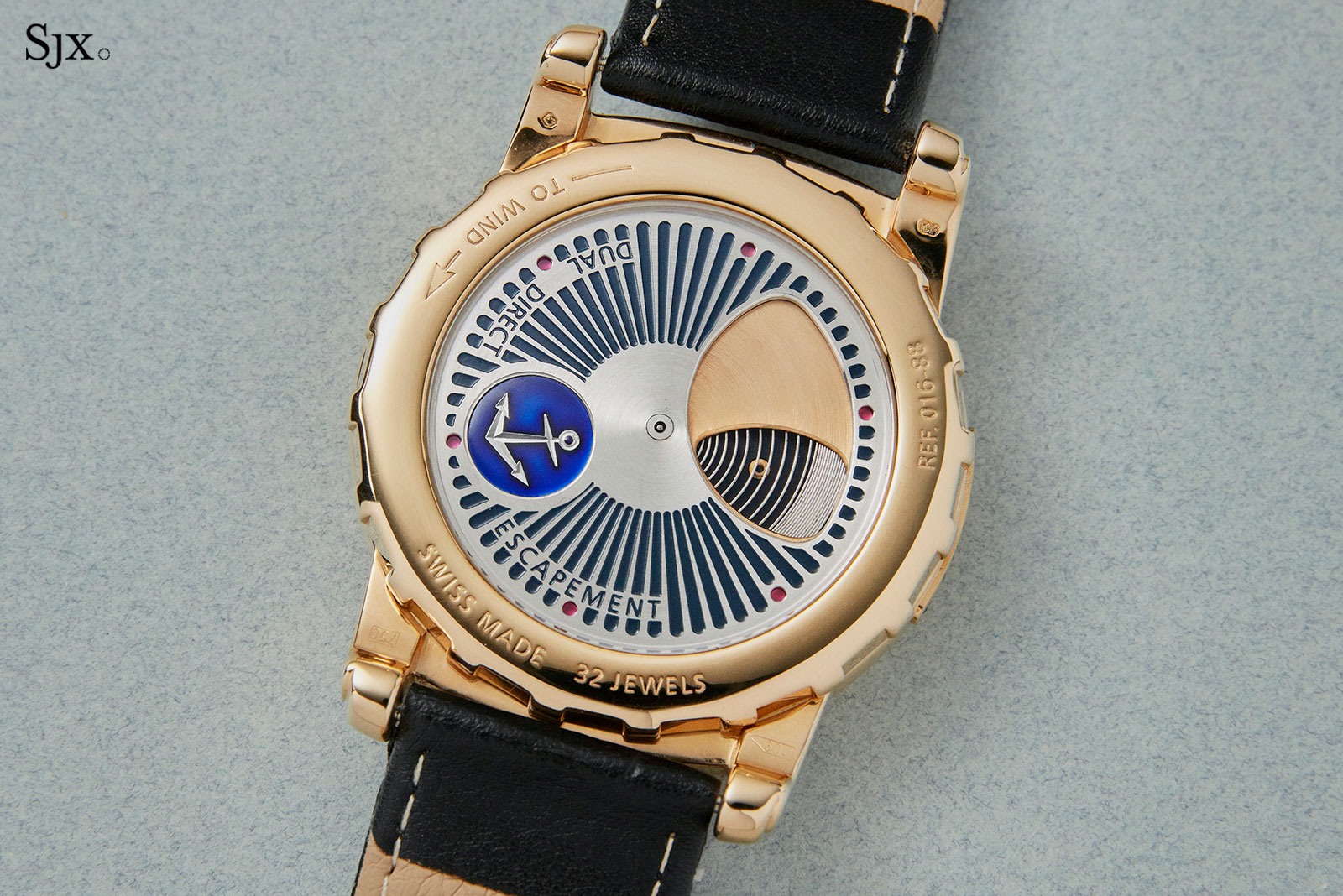
This particular example of the Freak is perhaps the quintessential version, with a rose gold case that matches the gilt finish of the movement bridges. It is what collectors term a Freak “1.5”, having being a first generation Freak with an upgraded, and substantially more reliable, silicon escapement taken from the Freak 2.
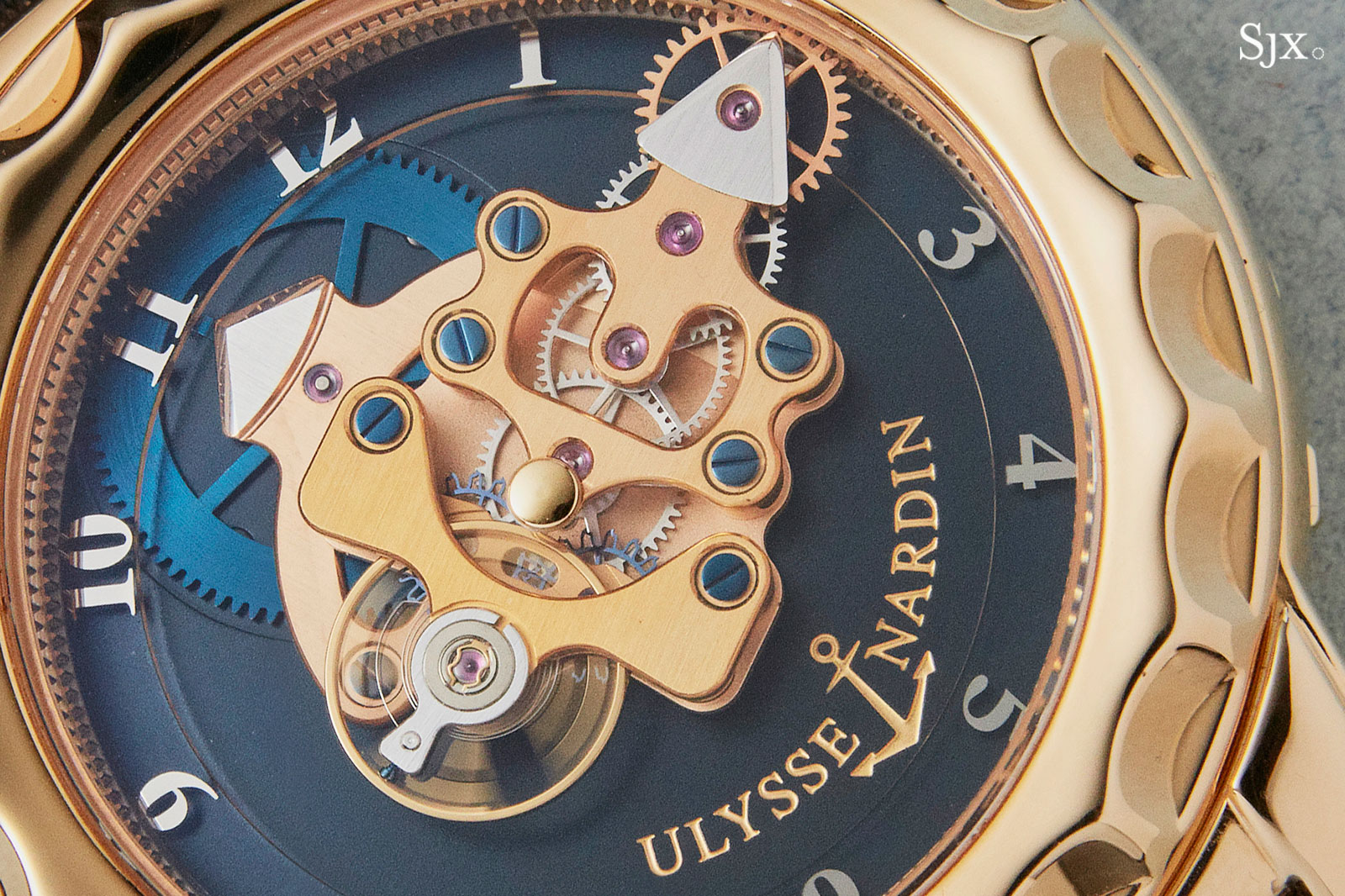
Accompanied by the original packaging and a warranty dated 2003, the Freak has an estimate of HK$200,000 to HK$300,000, or US$26,000 to US$38,000.
Lot 2299 – Jaeger-LeCoultre Master Minute Repeater
A strong value proposition as far as minute repeating wristwatches are concerned, the Jaeger-LeCoultre Master Minute Repeater was one of the most interesting striking watches of its time.
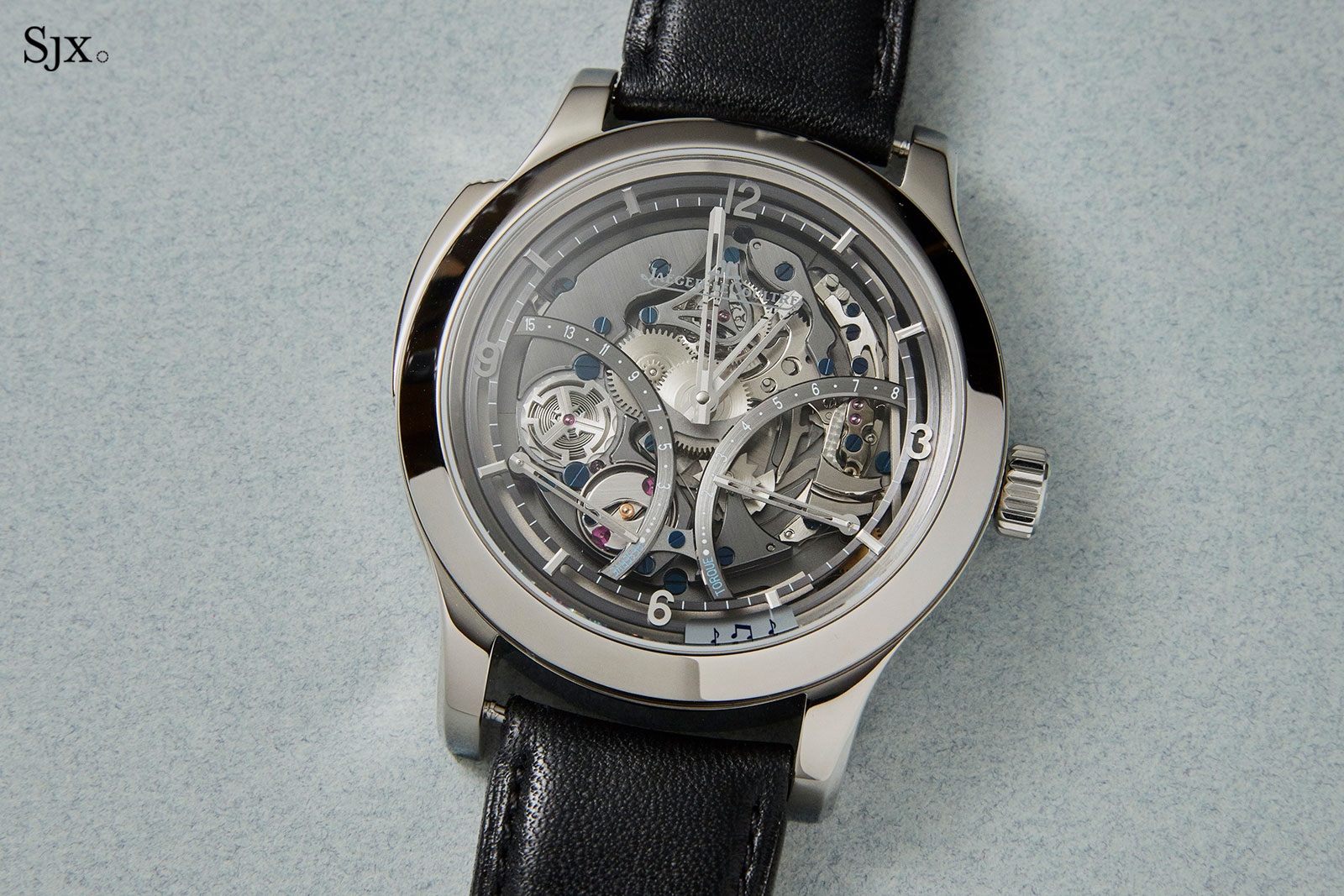
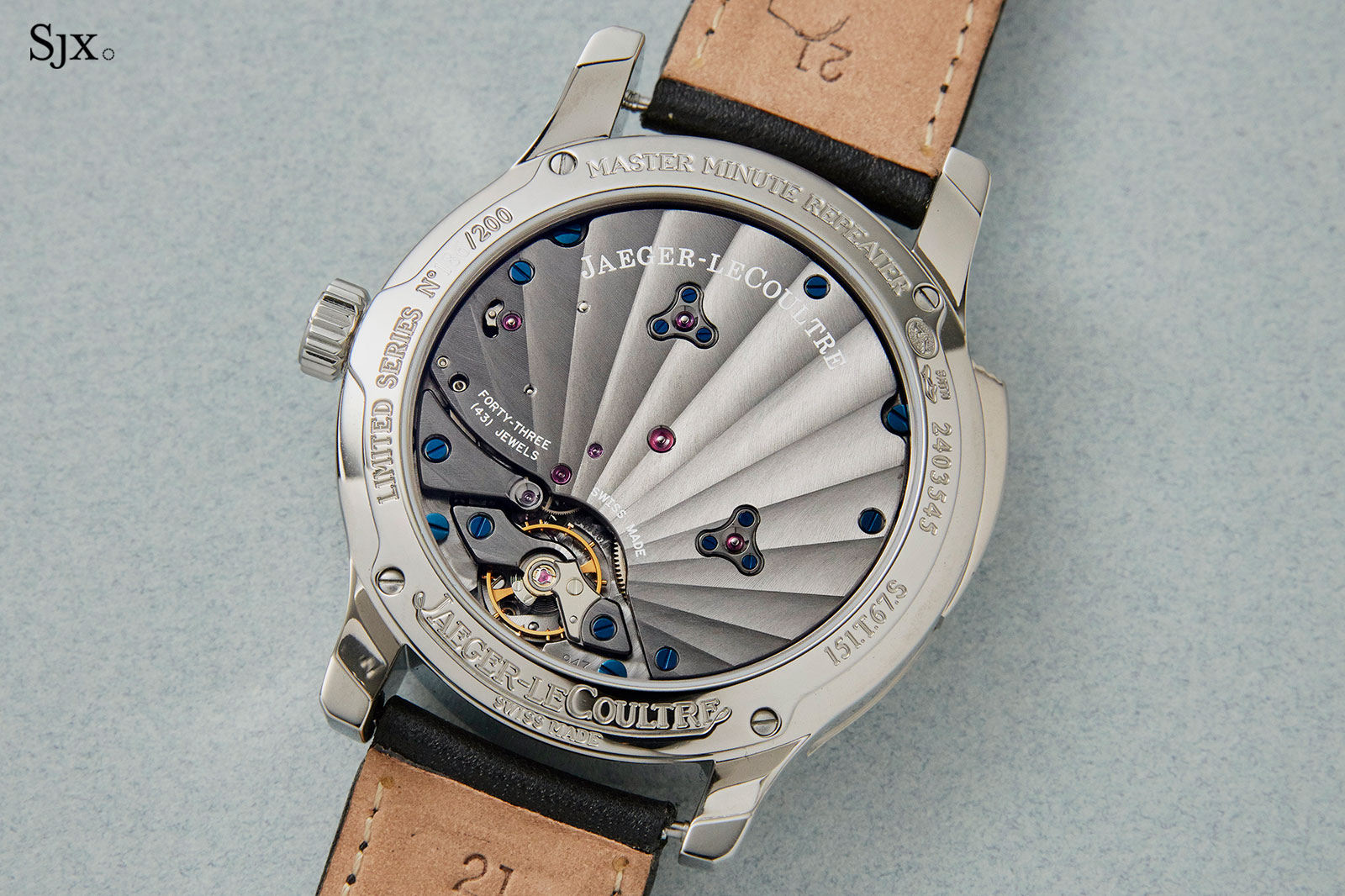
The base movement is hand-wound with a 15-day power reserve, and topped by a repeating module that’s visible through the sapphire dial. The gongs of the repeater are mounted on the sapphire crystal (and named Crystal Gongs by Jaeger-LeCoultre), which amplify the chimes.
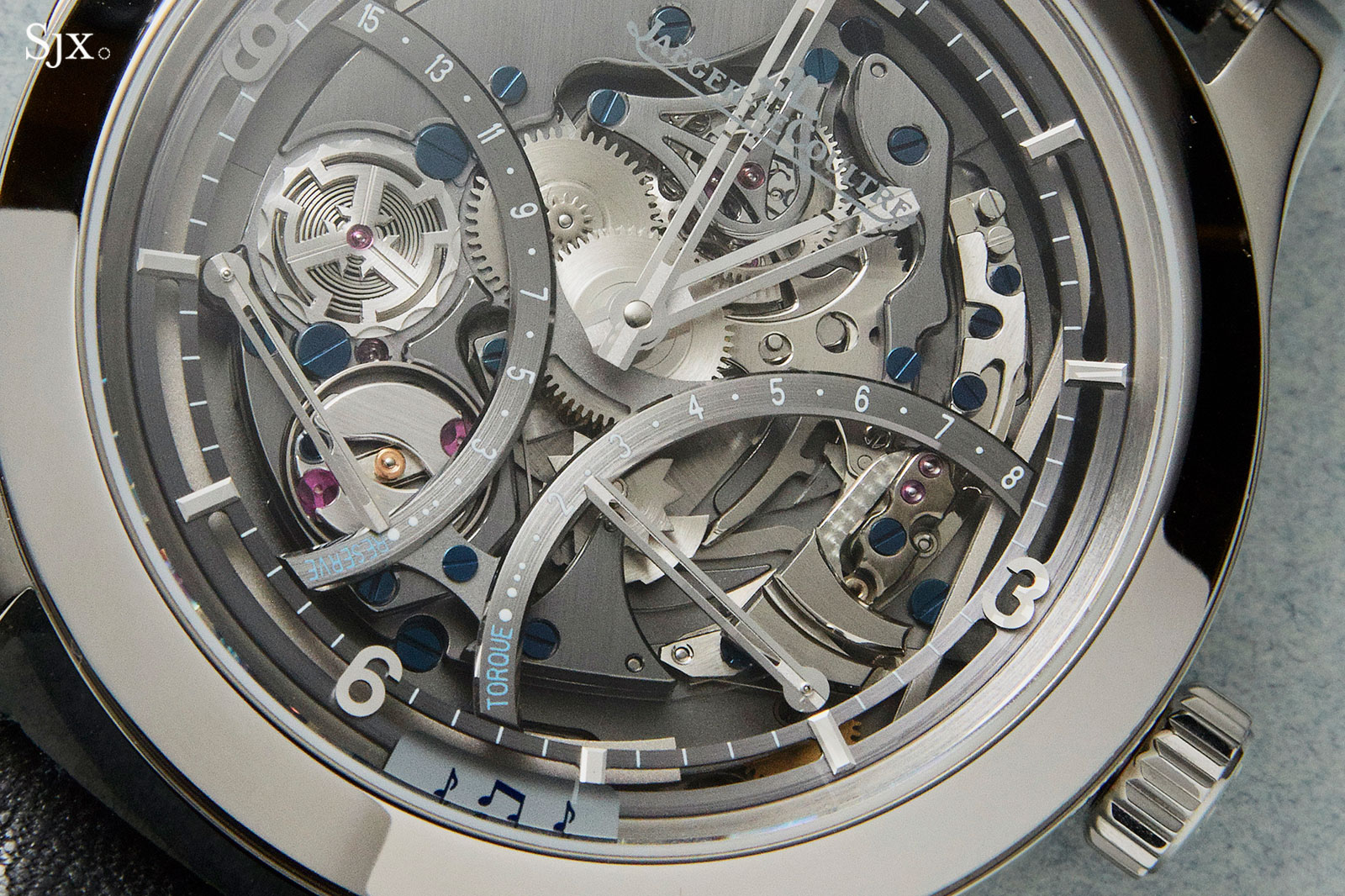
The sound is also helped by the lightweight titanium case, which is large 44mm in diameter. The result is a loud, strong and clear chime.
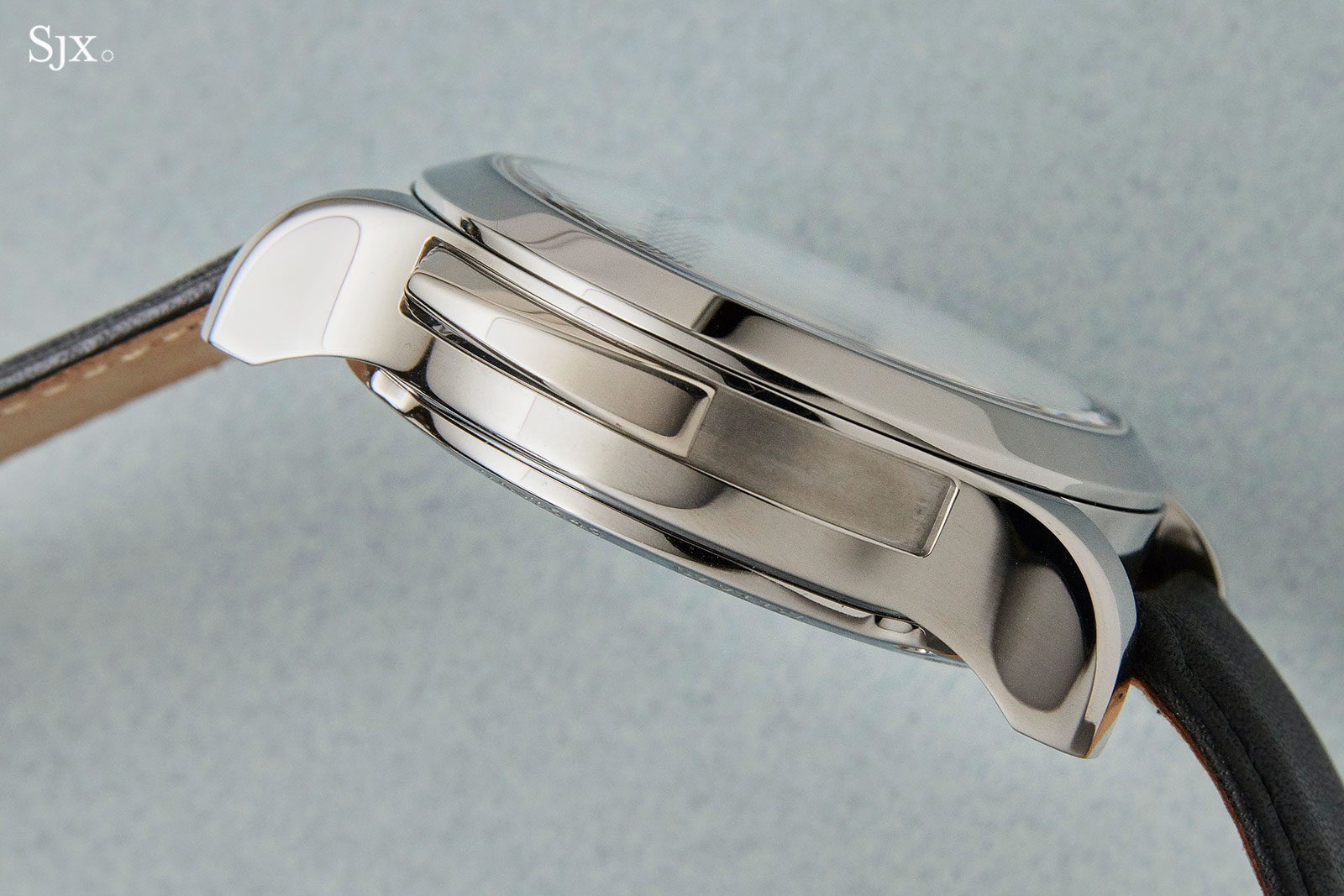
This is complete with the original packaging, and was originally sold in 2011. The Master Minute Repeater is estimated at HK$280,000 to HK$400,000, or US$36,000 to US$51,000.
Lot 2305 – Vianney Halter Antiqua
One of the classics of modern independent watchmaking, the Antiqua is synonymous with the works of Vianney Halter, though its styling was largely the work of American designer Jeff Barnes.
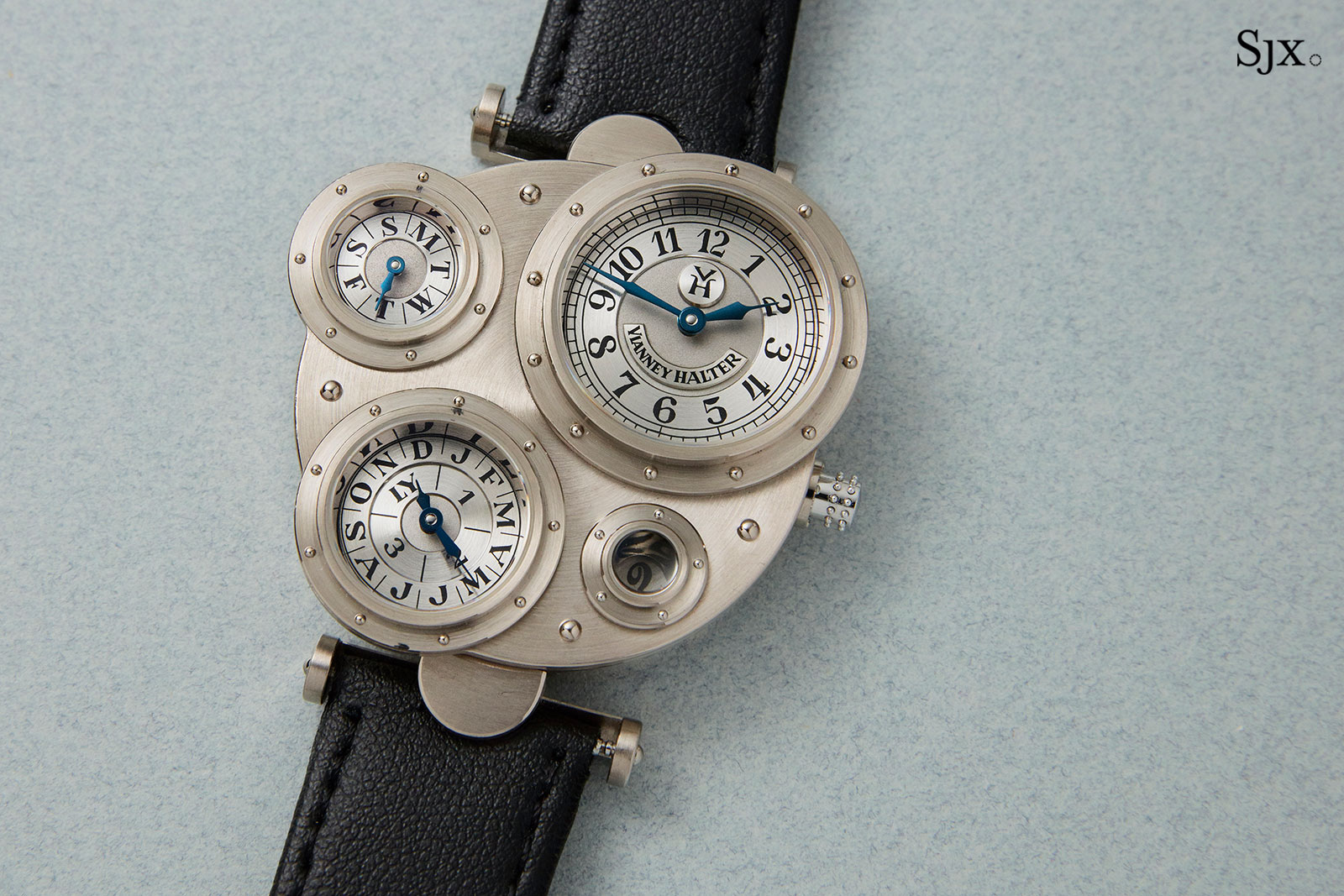
This example is in 18k white gold, with matching white gold sub-dials. The case construction is a work of art, with dozens of hand-applied rivets on the case, bezel and even the crown.
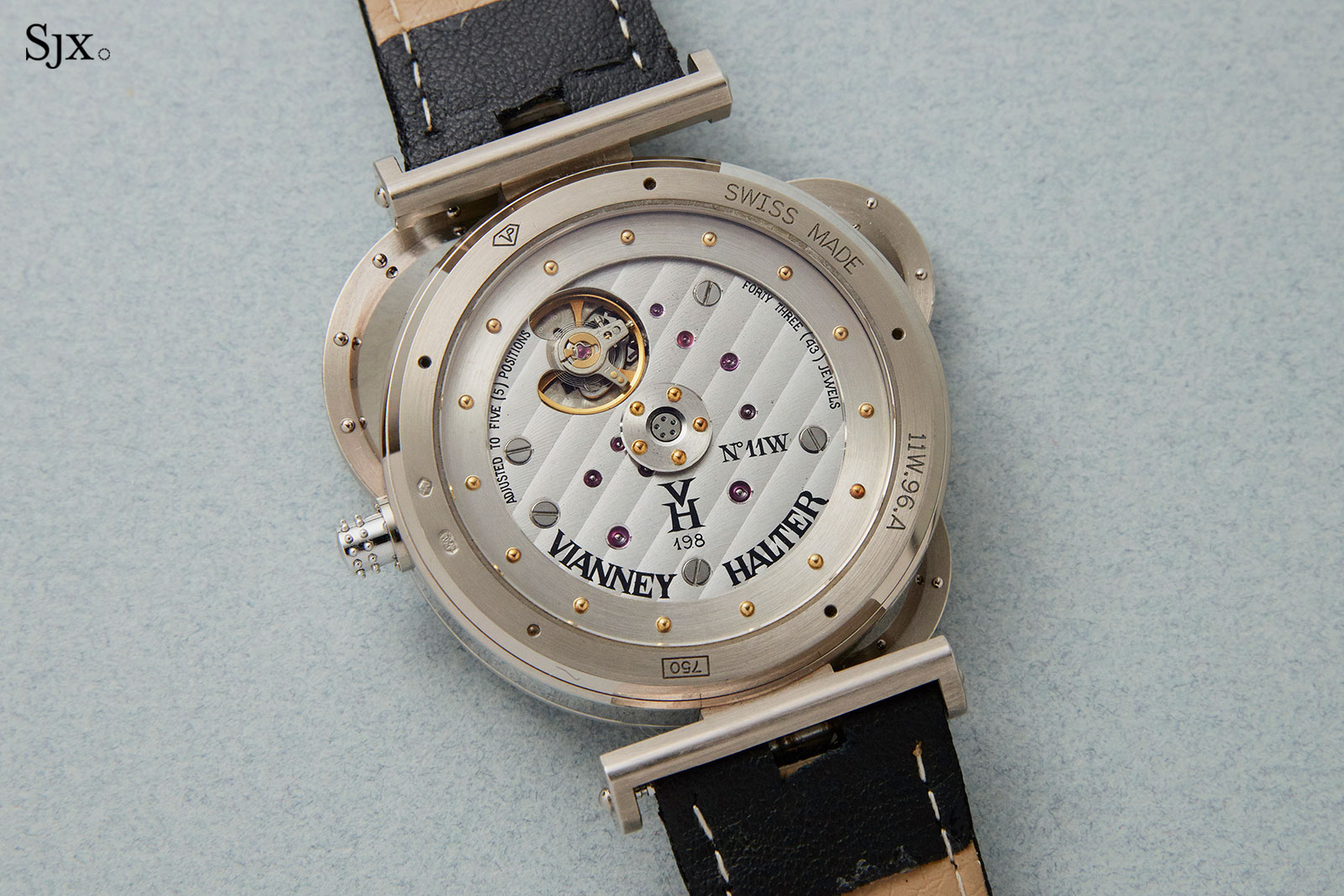
Relative to its retail price the Antiqua is a value buy, in part because it has a reputation for being finicky to set, delicate and expensive to repair.
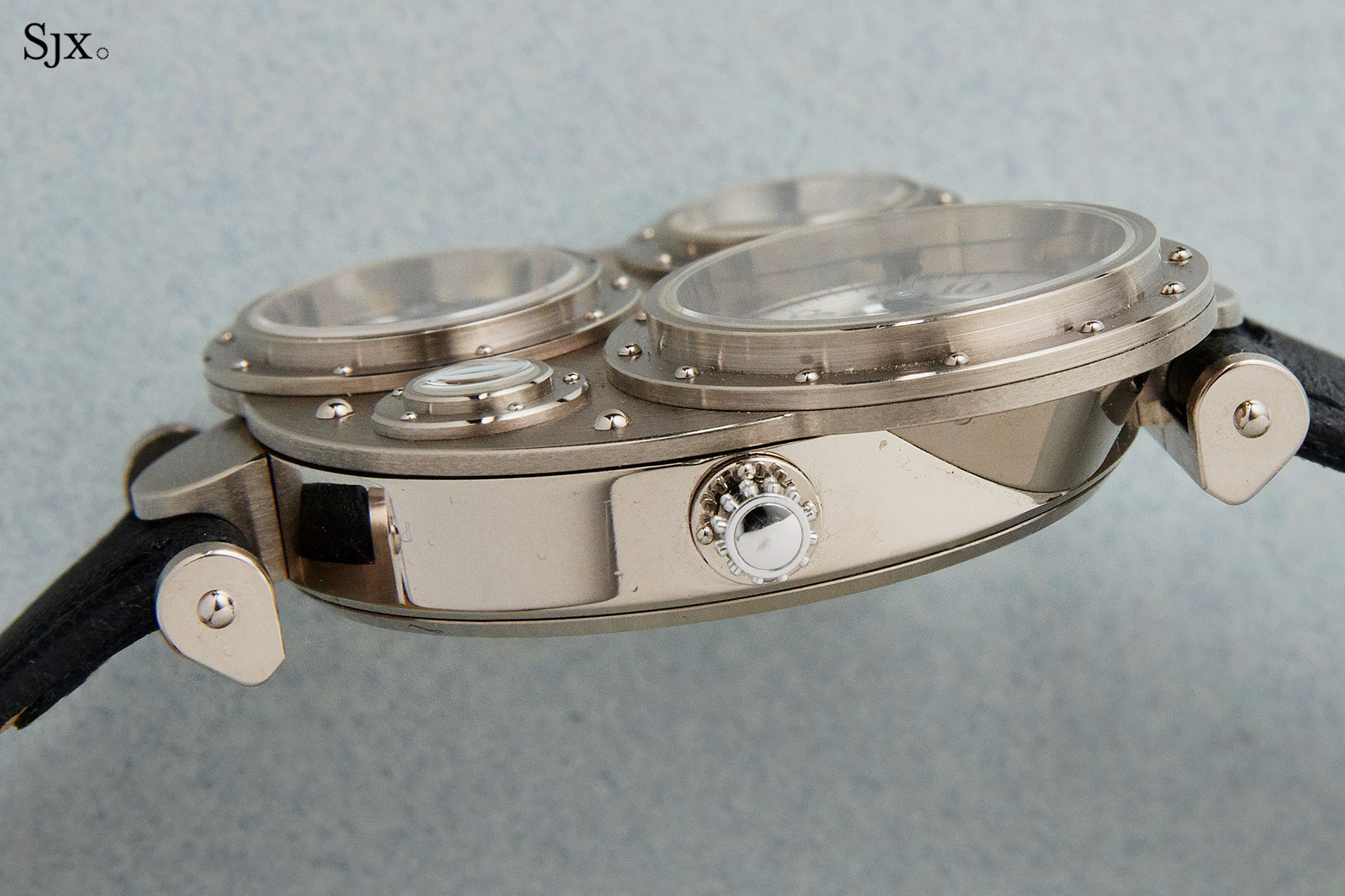
The watch includes its original winding box, an important accessory that’s often lost. The estimate is HK$240,000 to HK$300,000, or US$31,000 to US$38,000.
Lot 2307 – Urwerk UR-105M
One of the entry-level models in Urwerk’s line-up, the UR-105M tells the time via a wandering hours, with satellite discs indicating the hours travelling across the minute track.
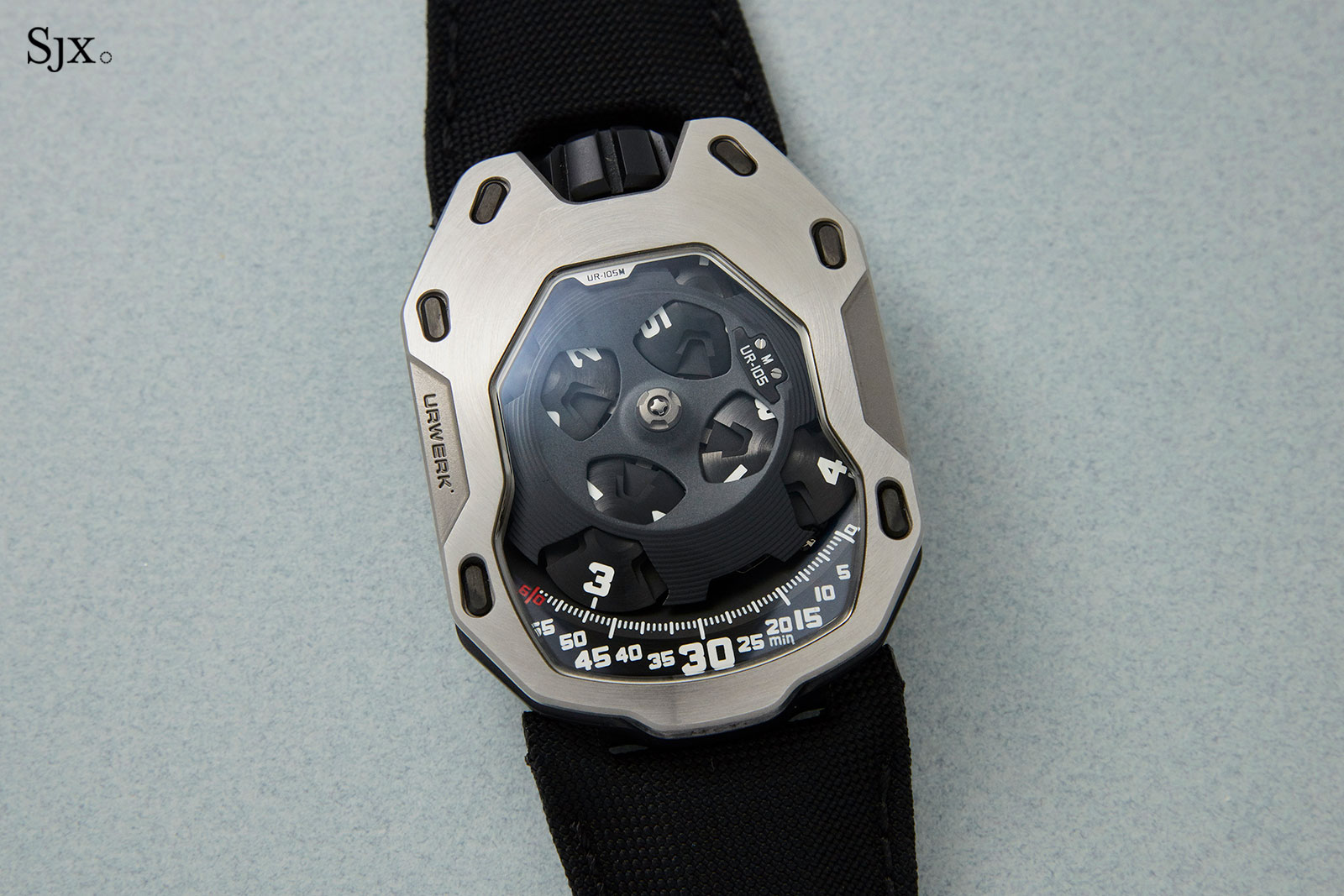
As is typical for Urwerk, various indicators are integrated into the case. Seconds are on the side, while the power reserve is on the “control panel” case back.
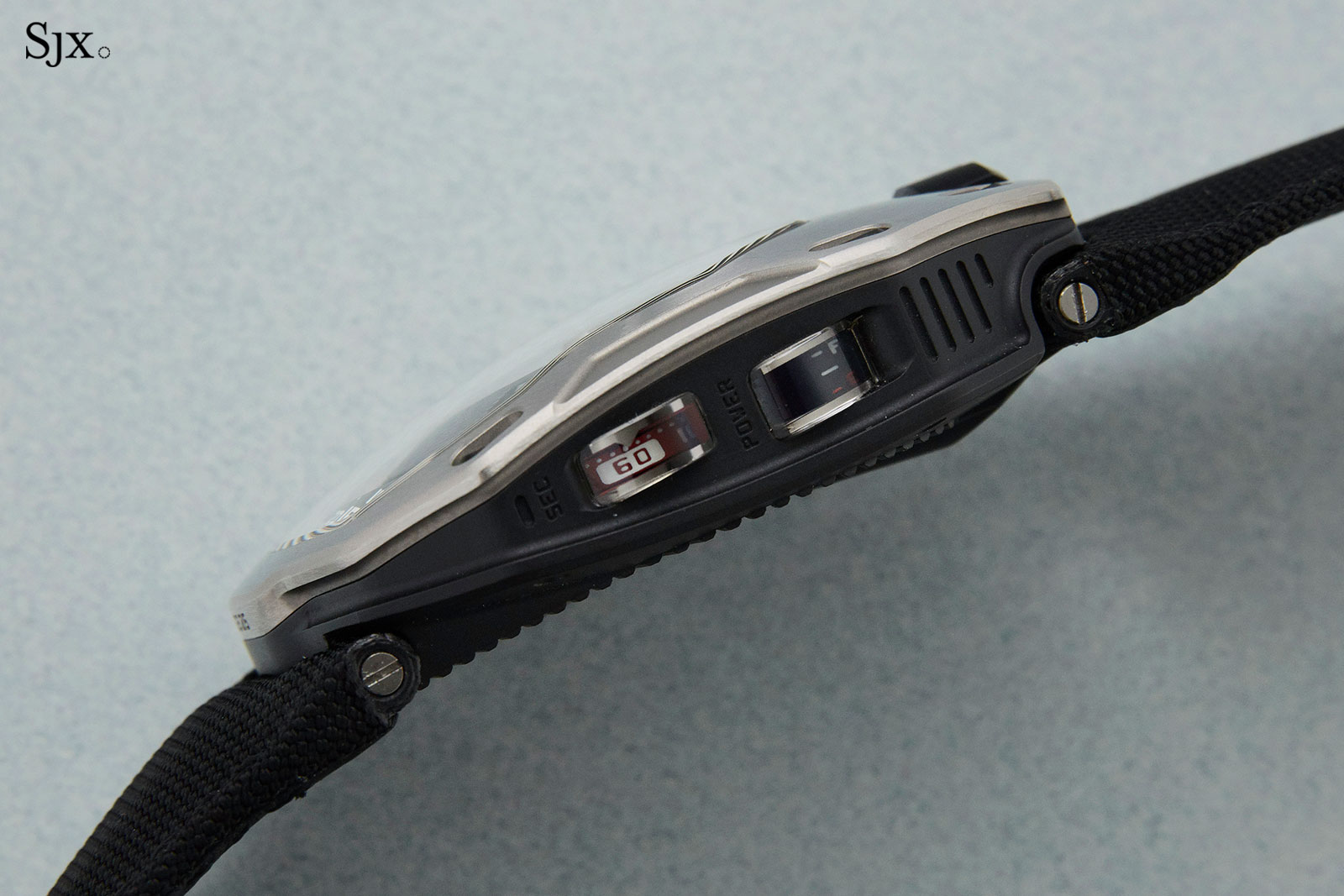
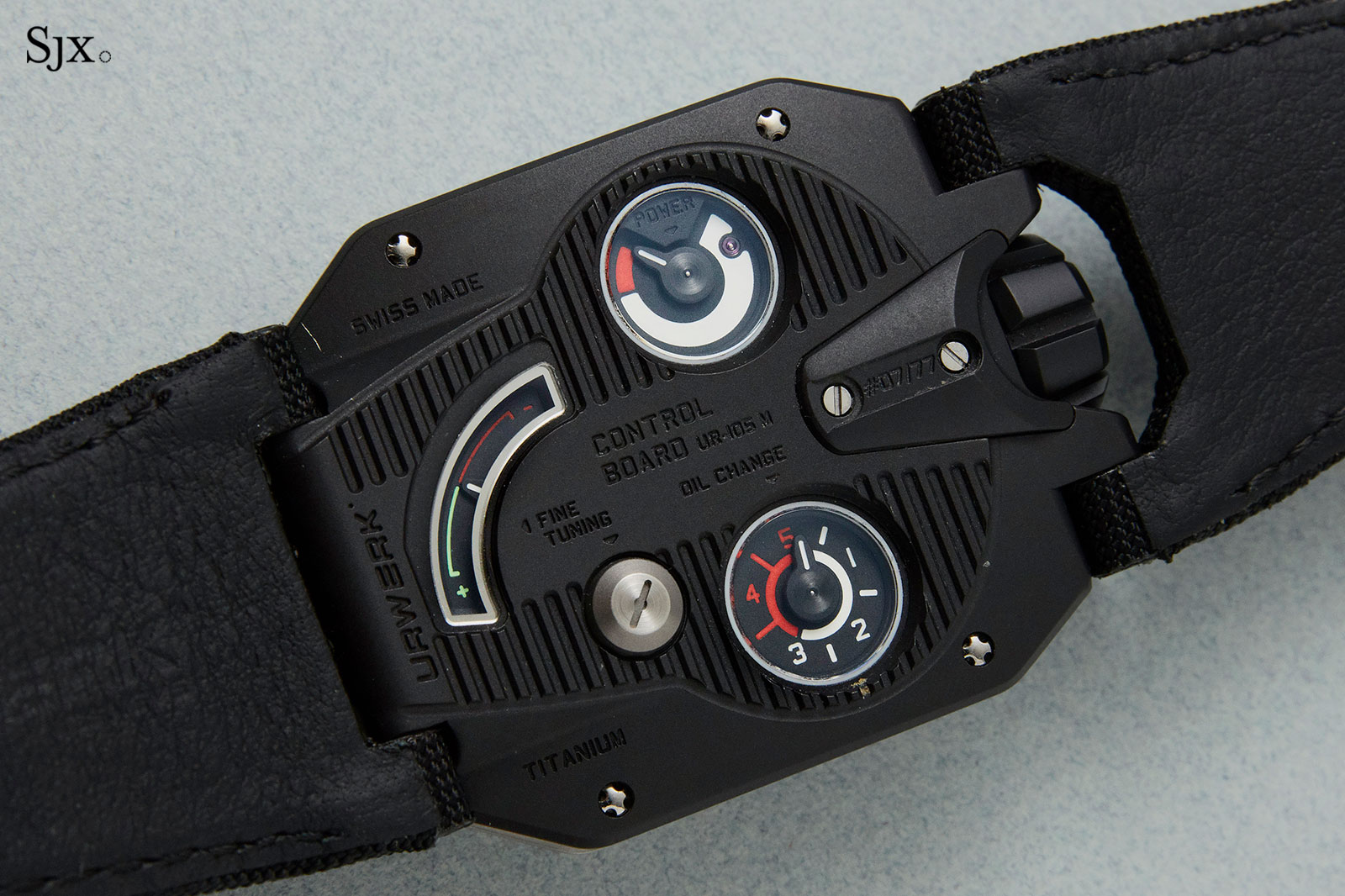
This model has a steel front plate, with a black-coated titanium back. It was a limited edition of 77 pieces.
Complete with boxes and a warranty dated 2016, the UR-105M has an estimate of HK$220,000 to HK$350,000, or US$29,000 to US$45,000.
Lot 2314 – MB&F HM2-SV
The HM2-SV, short for “Sapphire Vision”, was one of the first MB&F watches to feature a sapphire crystal case. Here it takes the form of a huge, oblong chunk of clear crystal screwed onto the front of the case that has a titanium back.
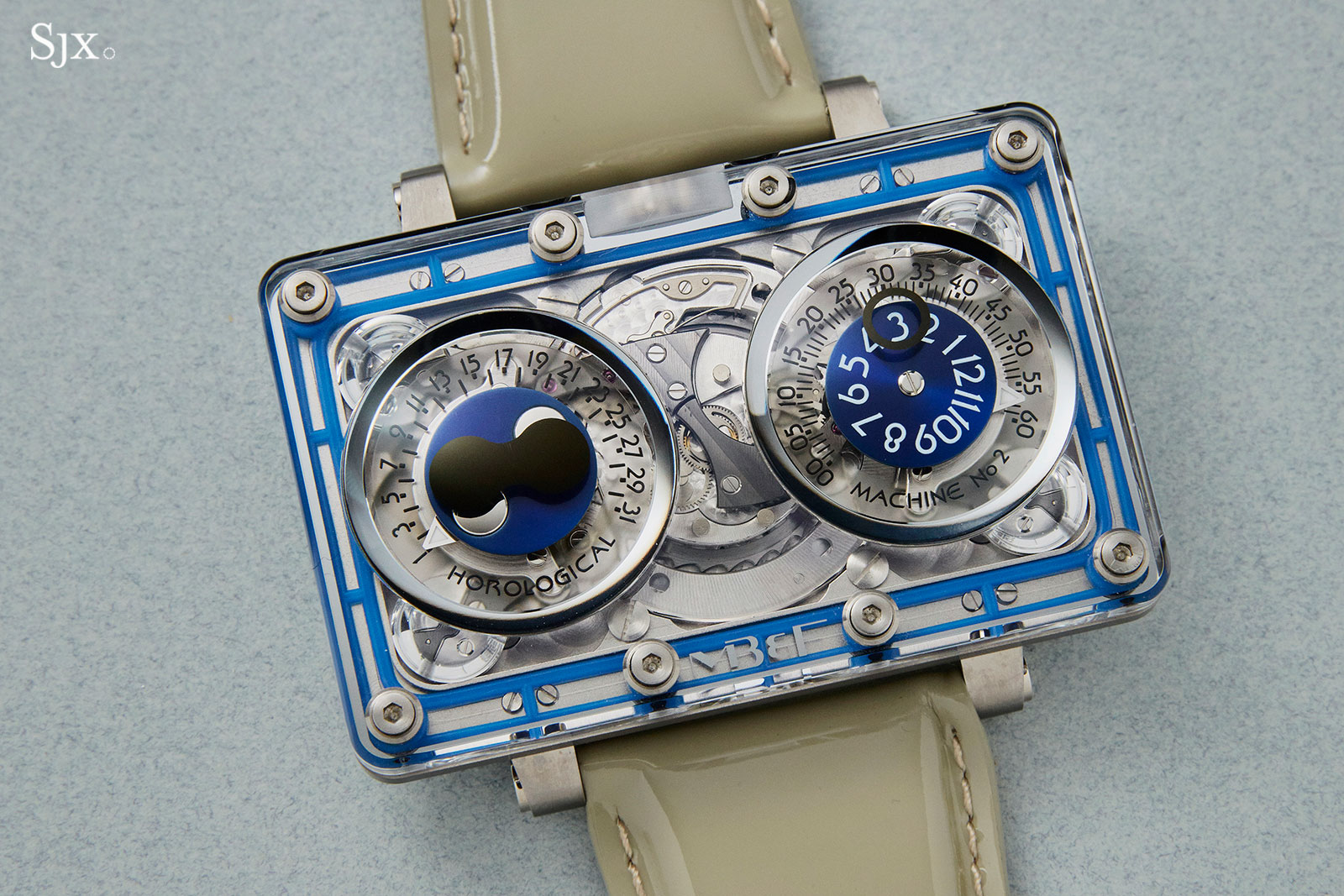
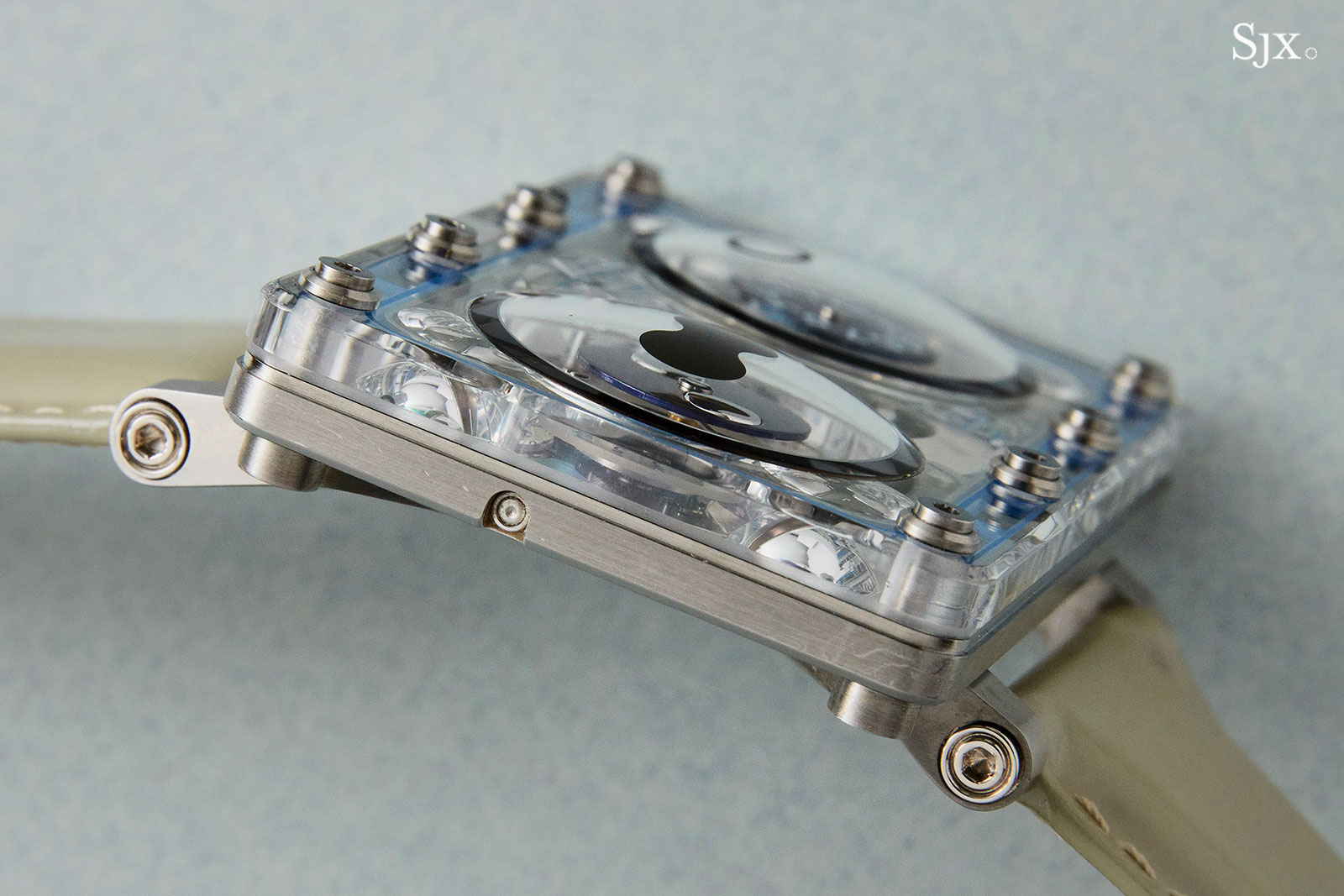
The movement is revealed on the front, and framed by a bright blue gasket that keeps moisture out of the case.
Hours and minutes are indicated on the right sub-dial, with the moon phase and date on the left.
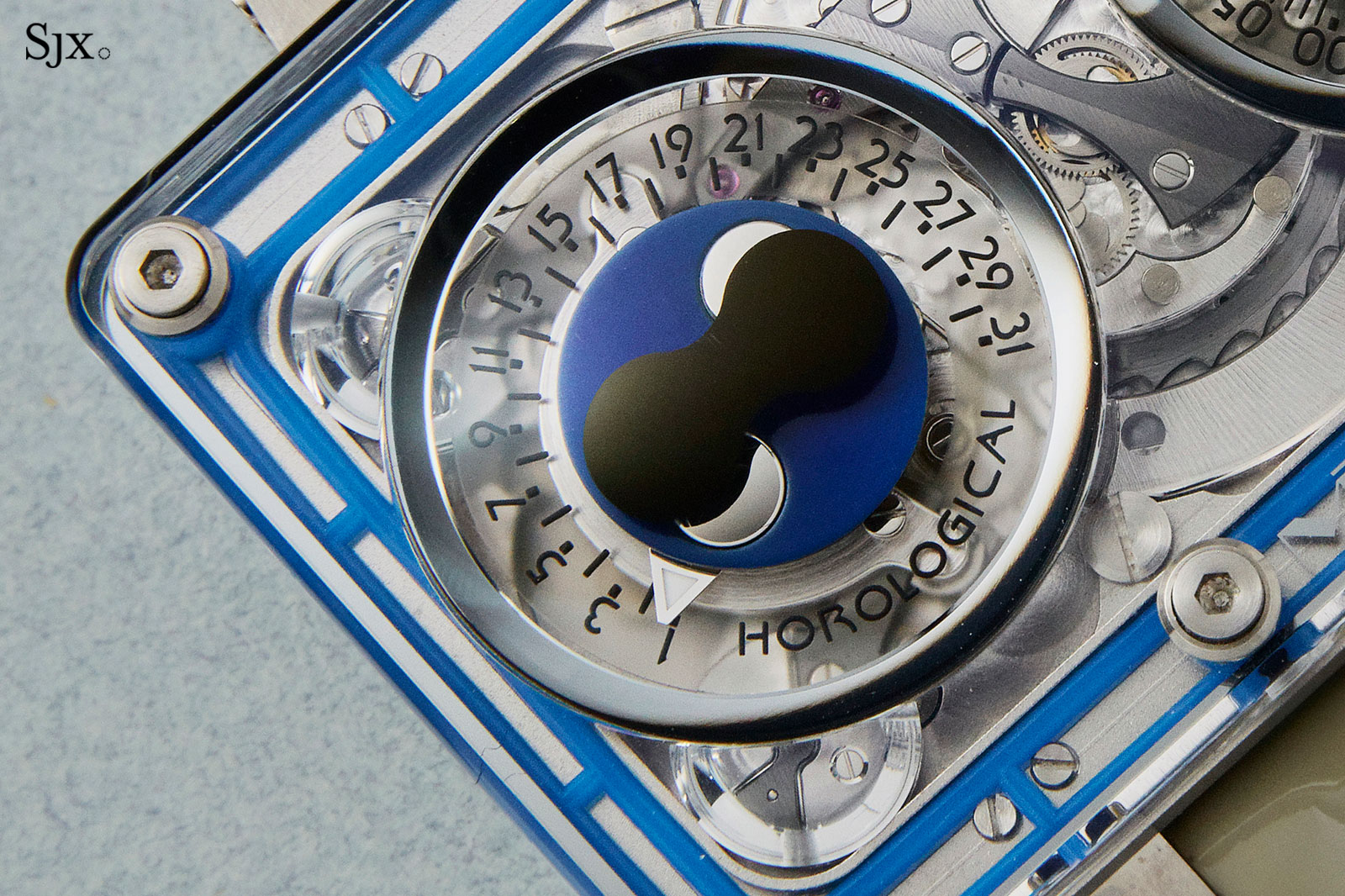
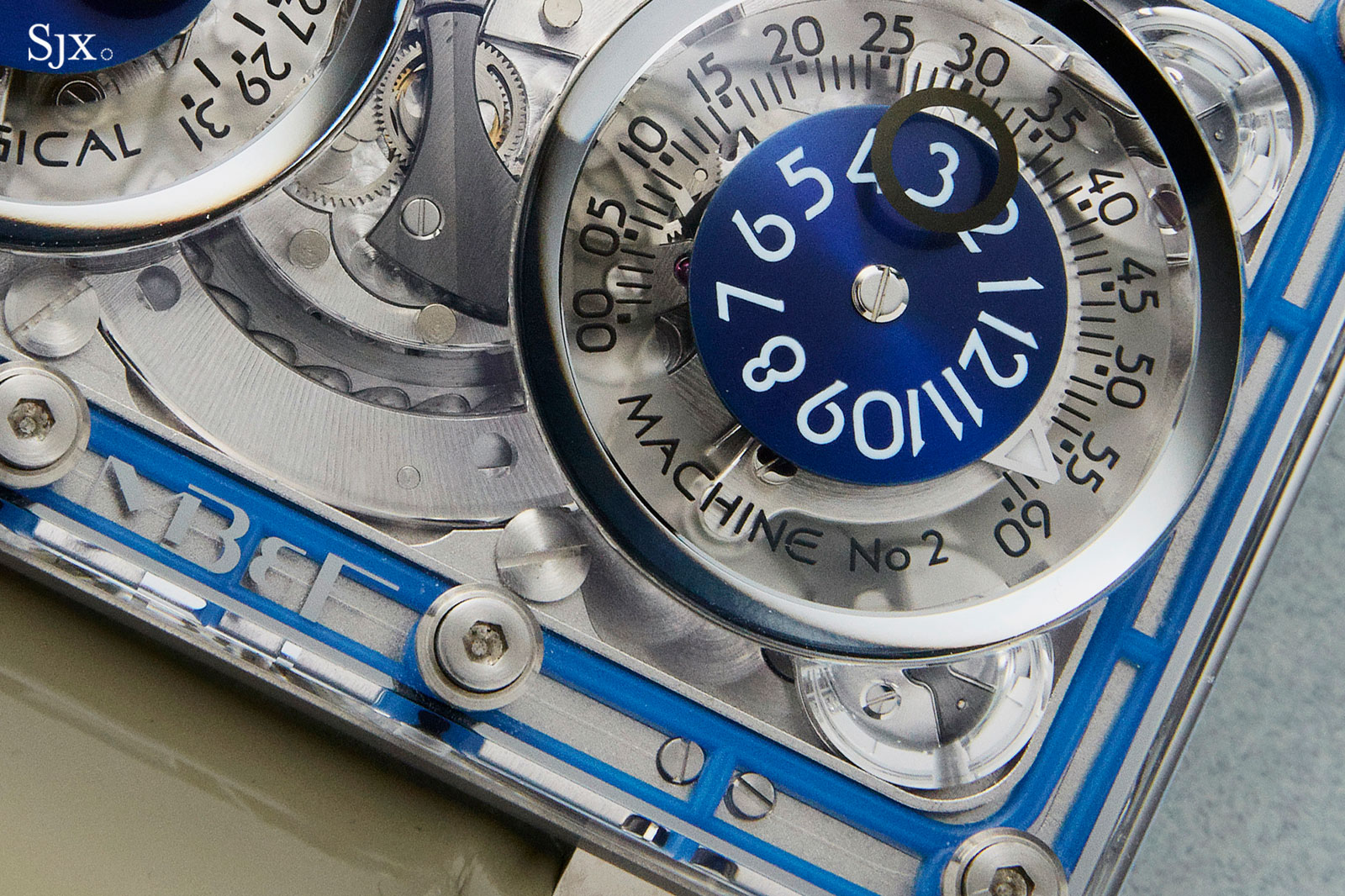
Although it is almost a decade old, having been introduced in 2010, the HM2-SV remains of the most unusual and striking MB&F watches to date. And relative to today’s sapphire case wristwatches, it is a accessibly priced buy.
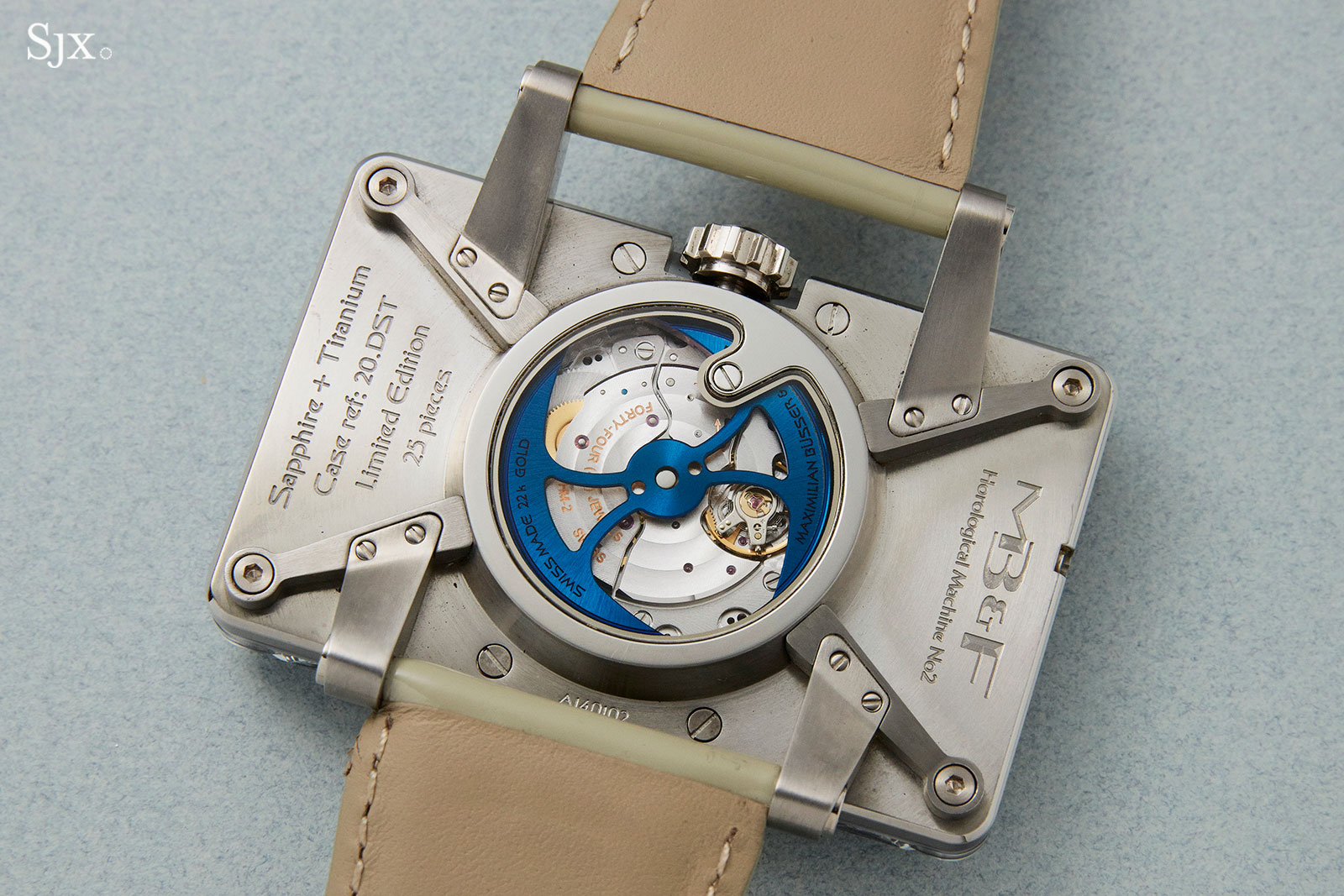
The HM2-SV has an estimate of HK$200,000 to HK$400,000, or US$26,000 to US$51,000. And as is the case for most MB&F watches sold at international watch auctions, the brand will offer the buyer a free service and subsequent one-year warranty.
Lot 2405 – Richard Mille RM 30 Le Mans
A 2014 limited edition that marked Richard Mille’s sponsorship of that year’s Le Mans Classic vintage car rally, this RM 30 has a front and back case in white ceramic, with a titanium case band in between.
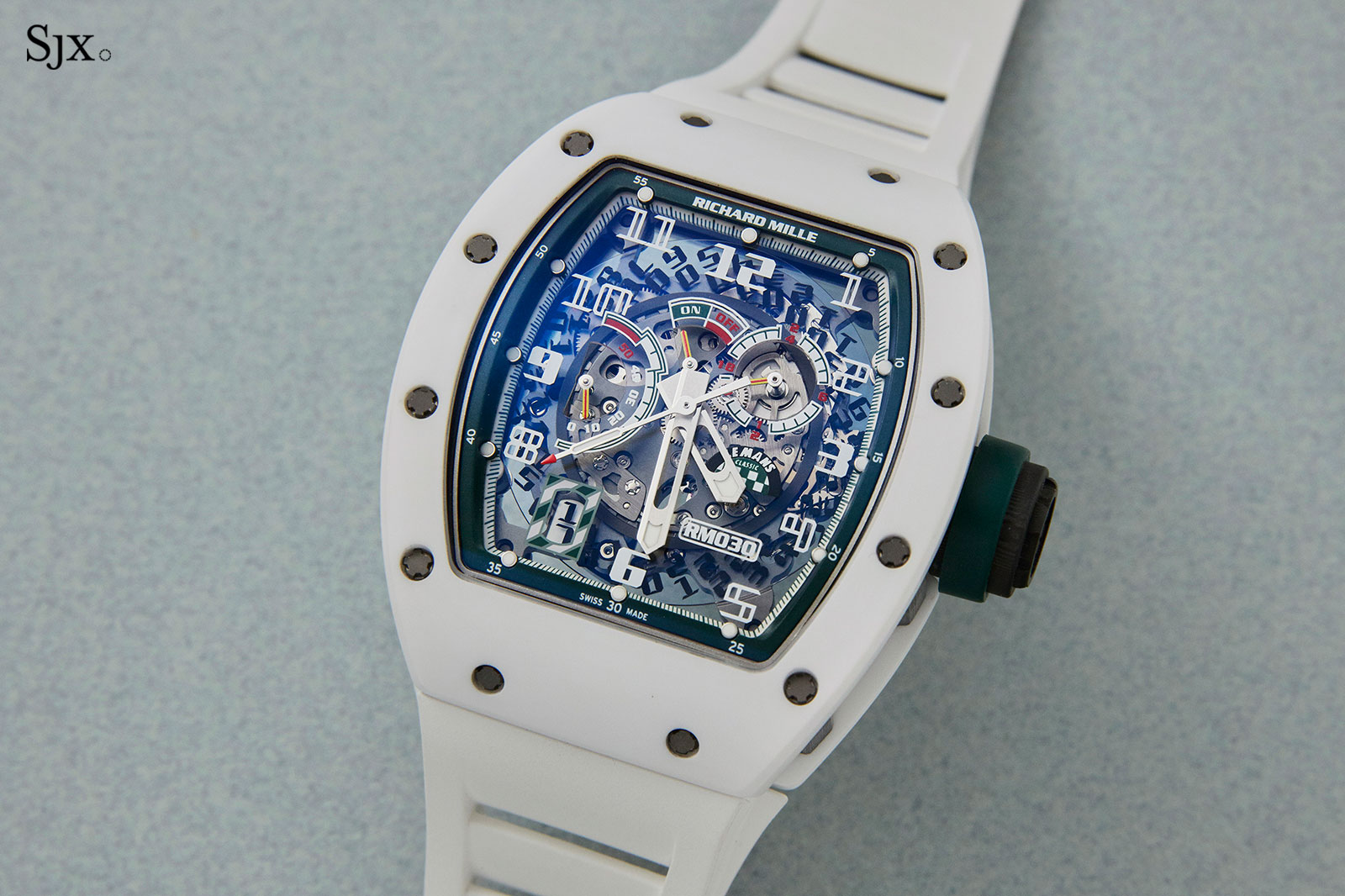
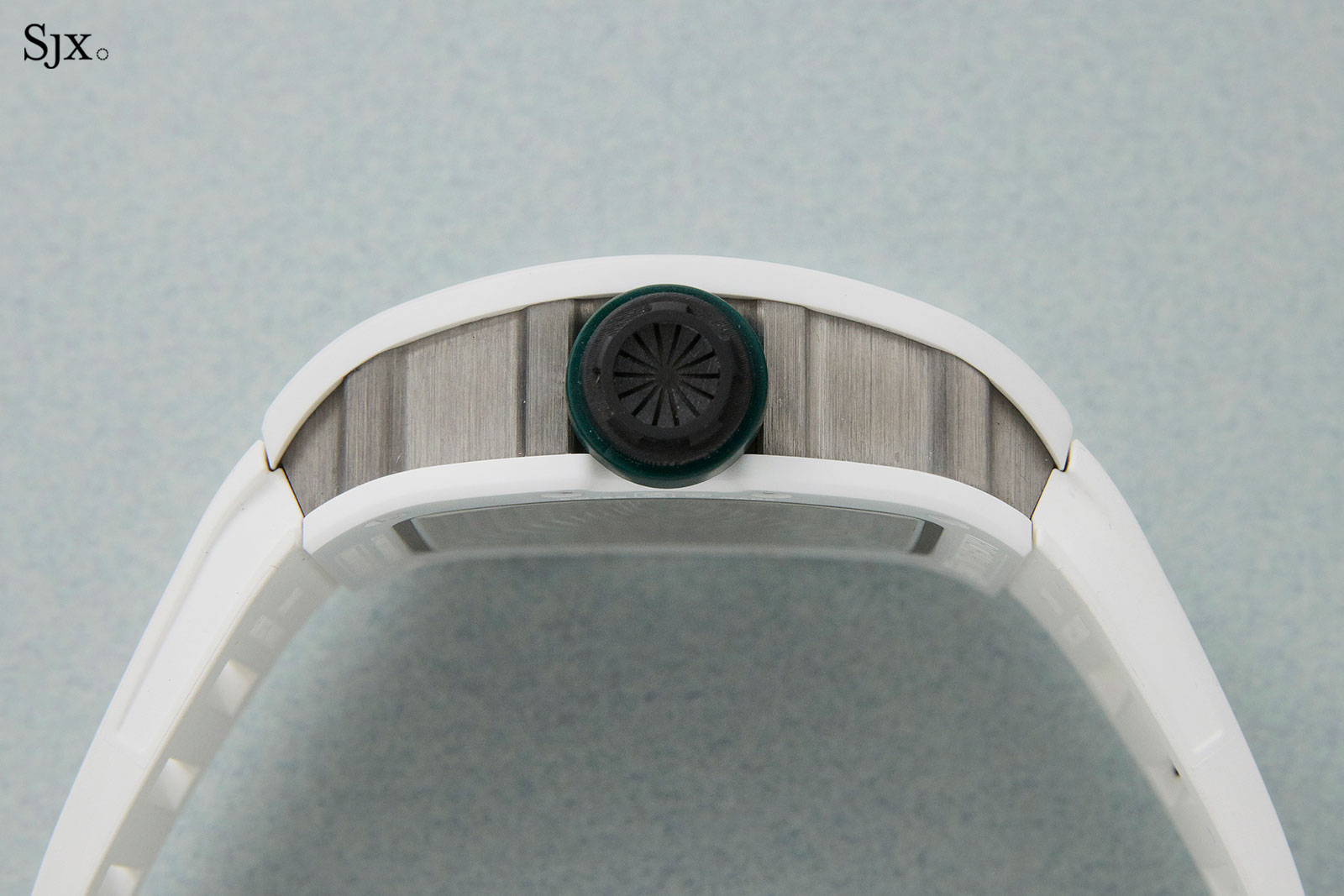
The movement inside (which is made by Vaucher but customise for Richard Mille) is self-winding with an unusual “declutchable” rotor that disconnects from the winding mechanism once the mainspring is fully wound. It was conceived to prevent overwinding.
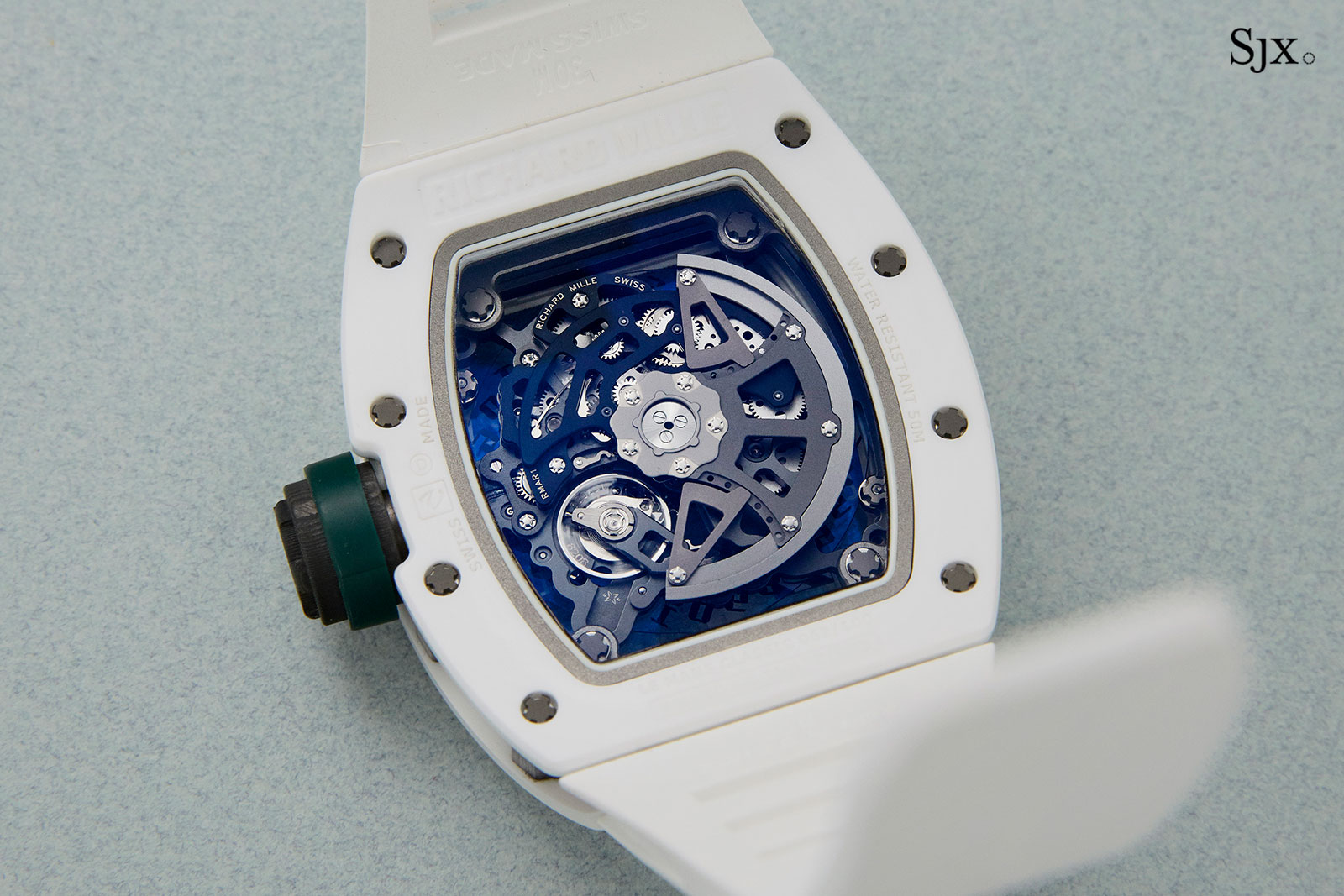
The estimate is HK$500,000 to HK$800,000, or US$65,000 to US$100,000, which might seem like a strong price for a time-only watch, but as Richard Mille timepieces go, this is a strong, entry-level buy given its unusual case material and large case size.
Lot 2433 – Audemars Piguet Tradition d’Excellence Cabinet No. 2
In 2000 Audemars Piguet announced the Tradition d’Excellence Cabinet, a series of five highly complicated watches that together would form a “cabinet” of top of the line complications.
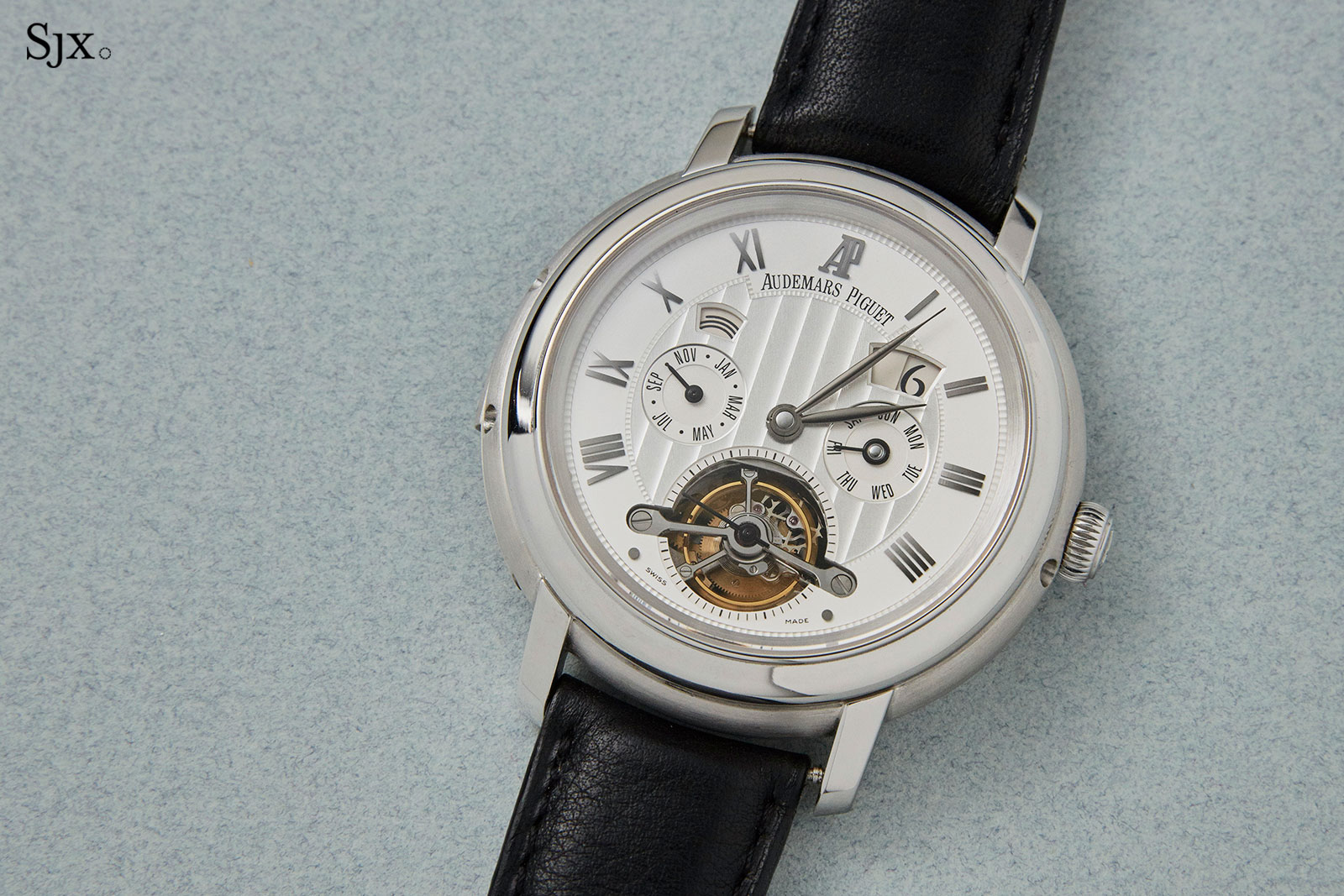
All the watches shared platinum cases and tourbillon regulators, but had different additional complications. Each watch in the series was a spare-no-expense multi-complication, but they are now somewhat forgotten given the domination of the Royal Oak (which makes them good buys relative to their original retail prices).
The Cabinet No. 2 combines a tourbillon, minute repeater and perpetual calendar with oversized date. (And the Cabinet No. 1 watch is the preceding lot in the auction.)
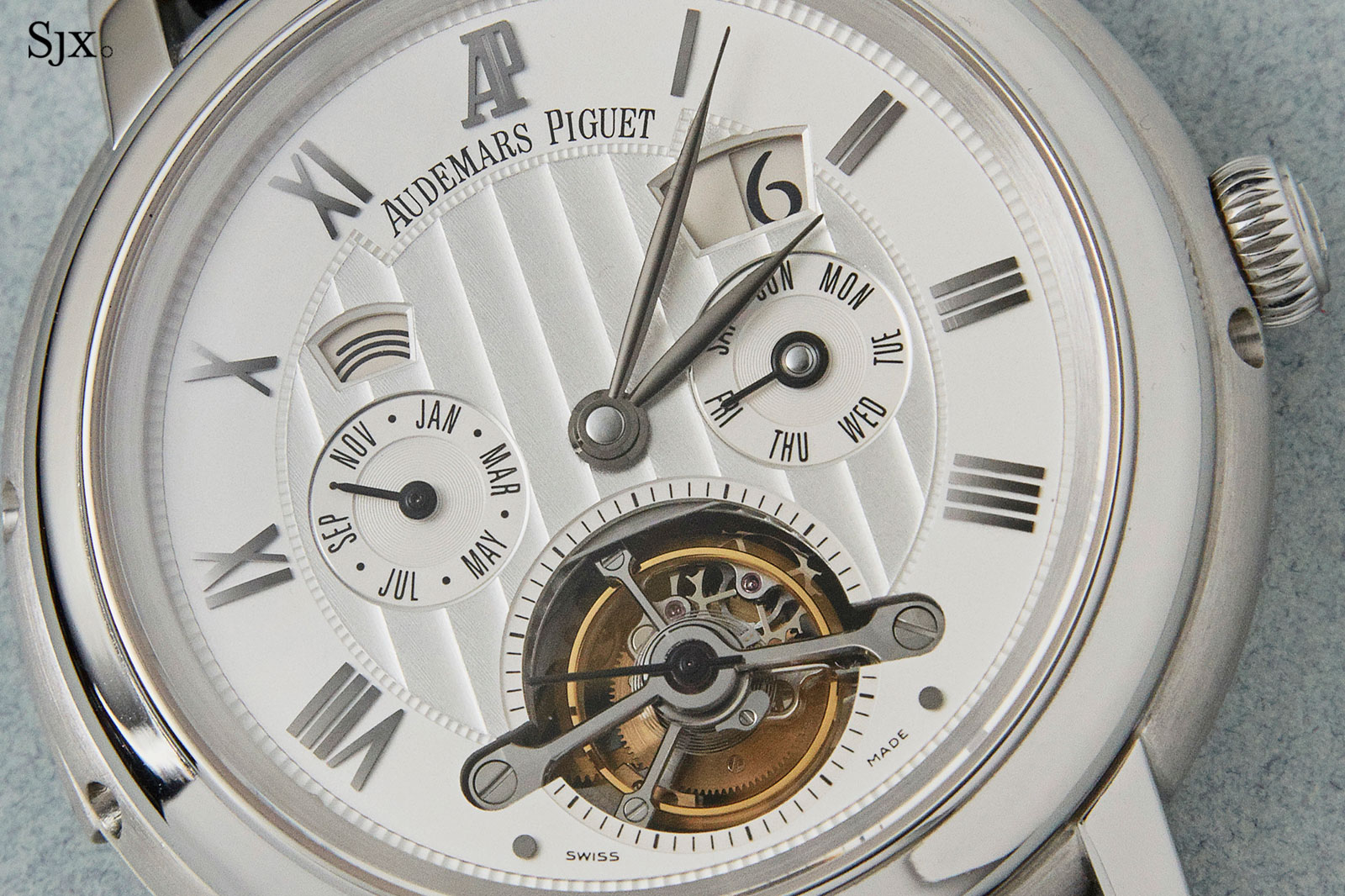
The case is a large 43mm in diameter, but filled up well with a relatively large movement.
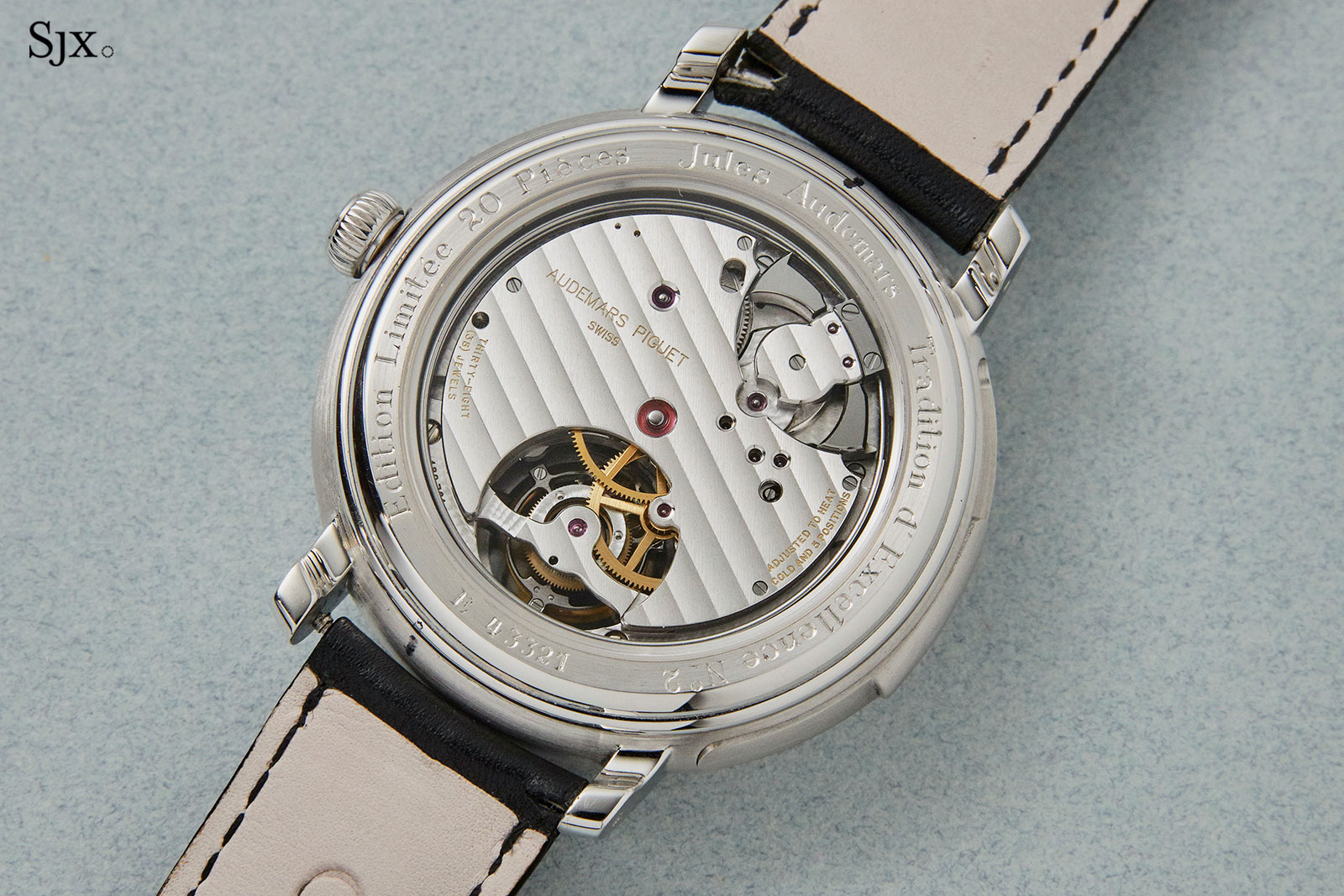
Built by Renaud & Papi, Audemars Piguet’s complications subsidiary, the cal. 2869 is gorgeously finished. And the lettering around the rim of the case back is hand-engraved.
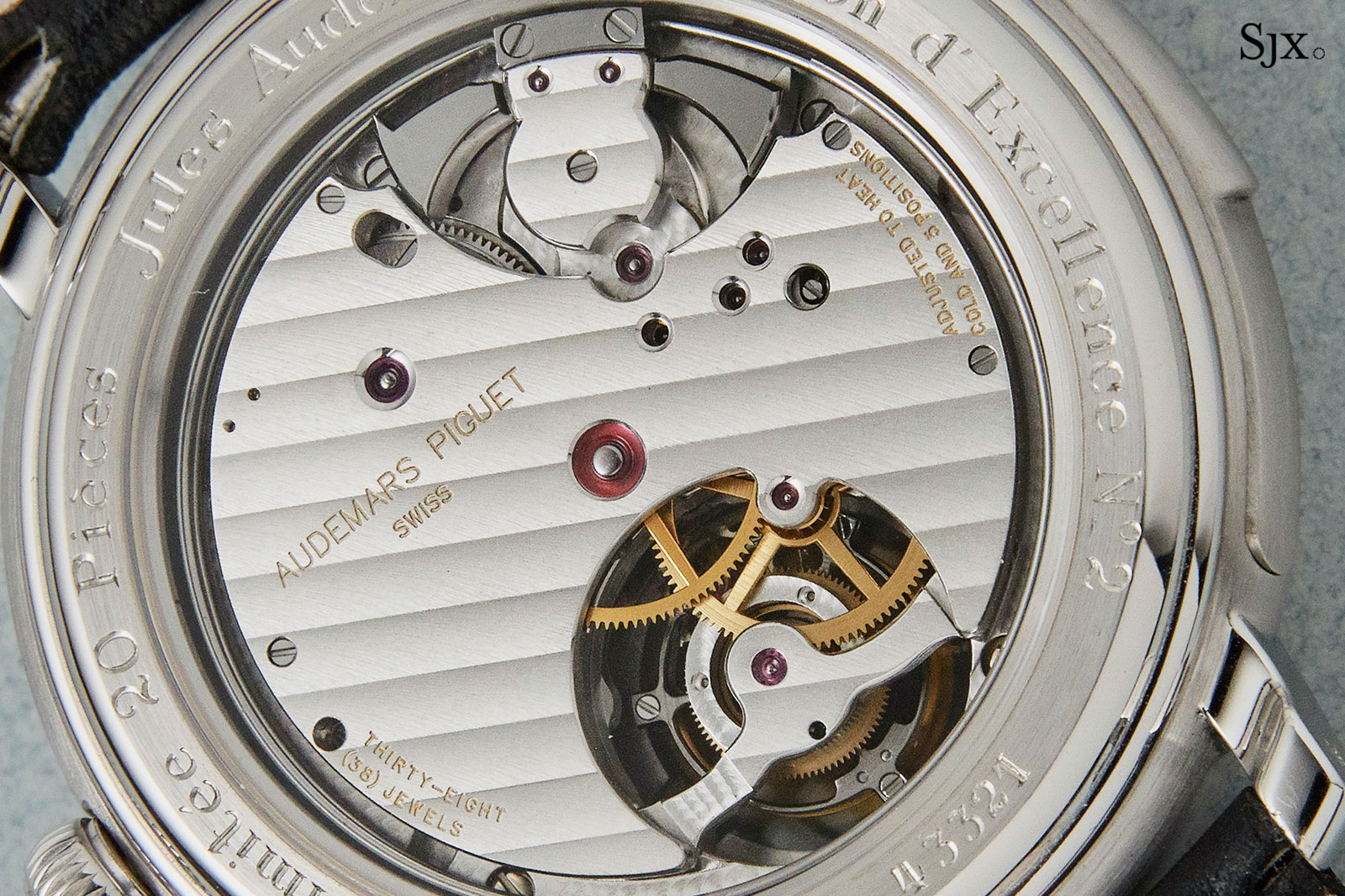
Like most of the Cabinet series, the case is a round Jules Audemars, executed in a manner that’s reminiscent of vintage Audemars Piguet cases. The case flanks and lugs have a matte finish that’s brushed in a diverging, perpendicular direction, while the lugs have prominent hallmarks on their sides.
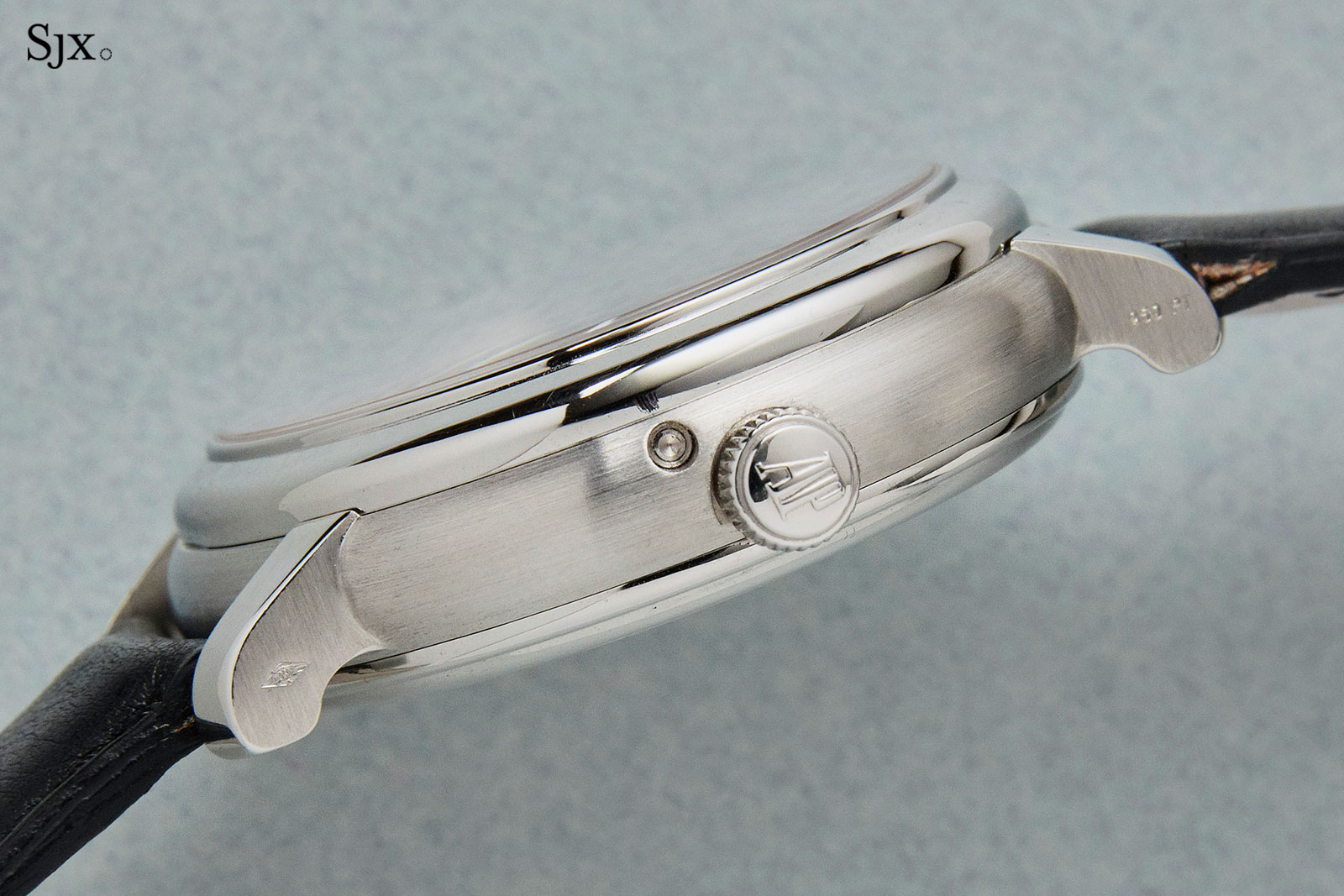
This is complete with the original packaging, including a monumental wood box decorated with marquetry and burl wood that locks with a tiny, tasselled key. The estimate is HK$700,000 to HK$1.20m or US$90,000 to US$150,000.
Lot 2442 – Patek Philippe ref. 5004R
The auction also has two generations of the Patek Philippe split-seconds chronograph with perpetual calendar. Appropriately enough, the earlier generation ref. 5004R comes first.
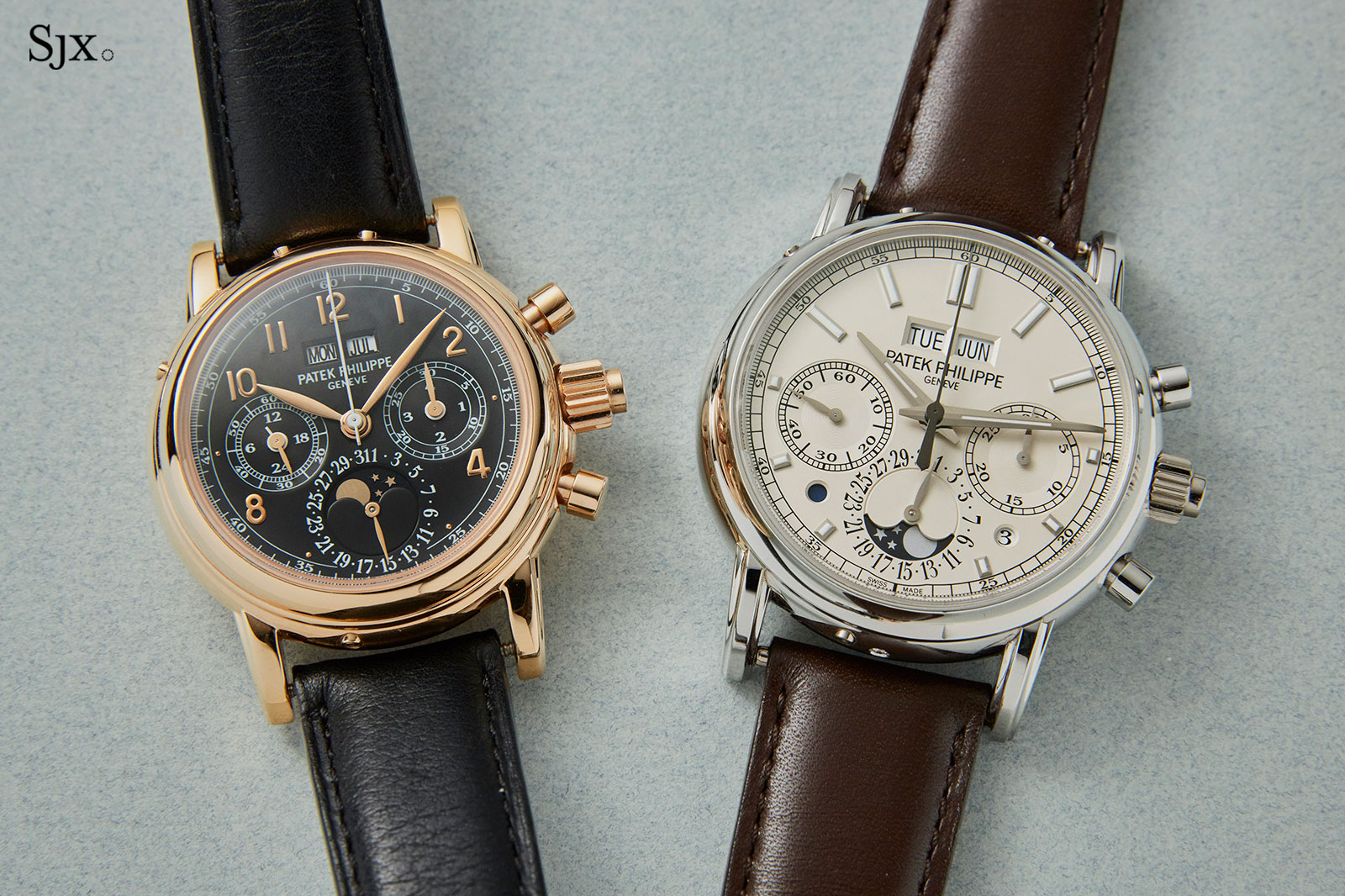
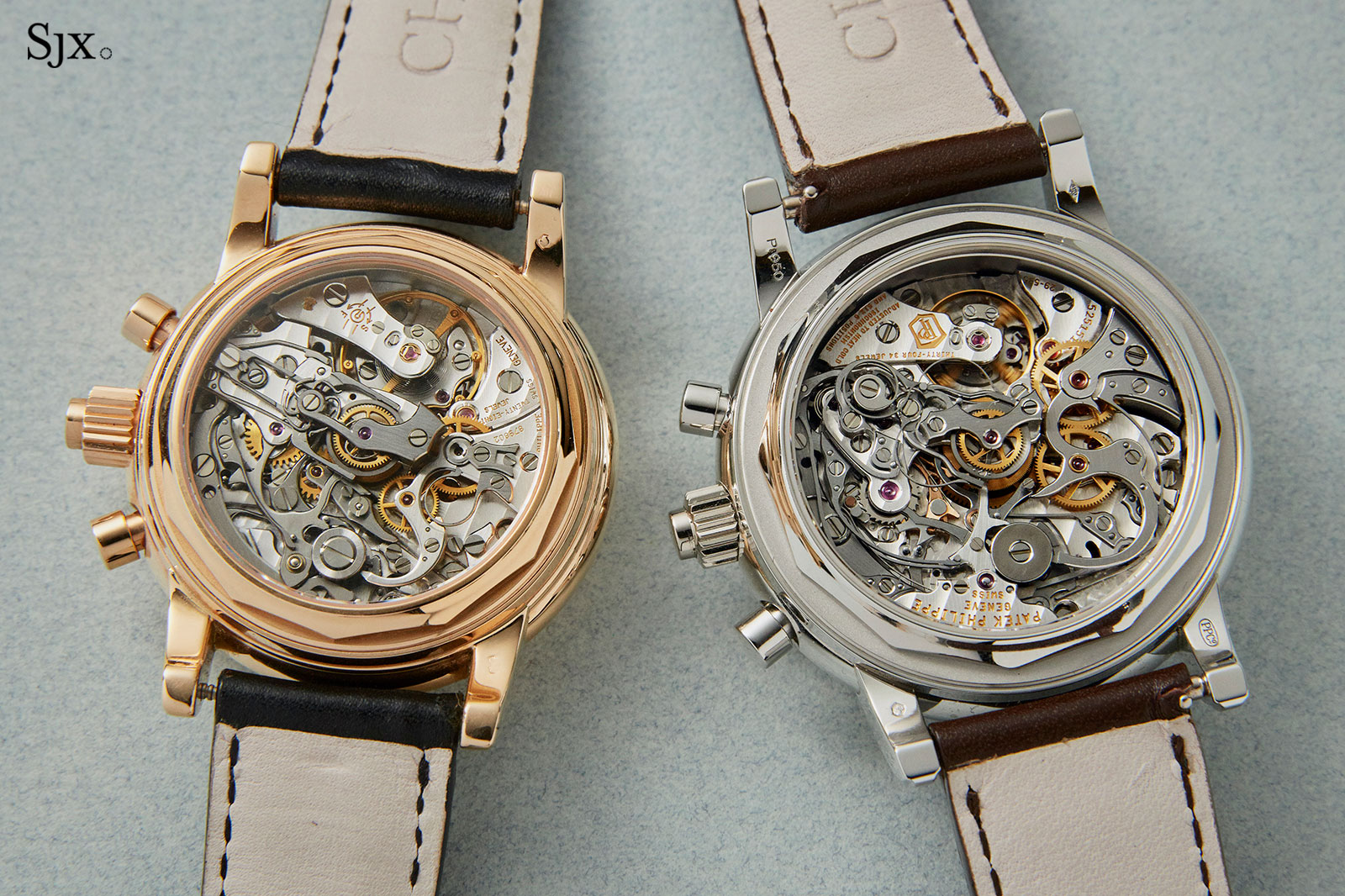
Produced for about 20 years starting in 2004, the ref. 5004 is typical Philippe Stern-era styling, with leaf-shaped hands, Arabic numerals and a railway minute track. This example produced in 1999 is one of the most appealing variants of the model with a rose gold case and black dial.
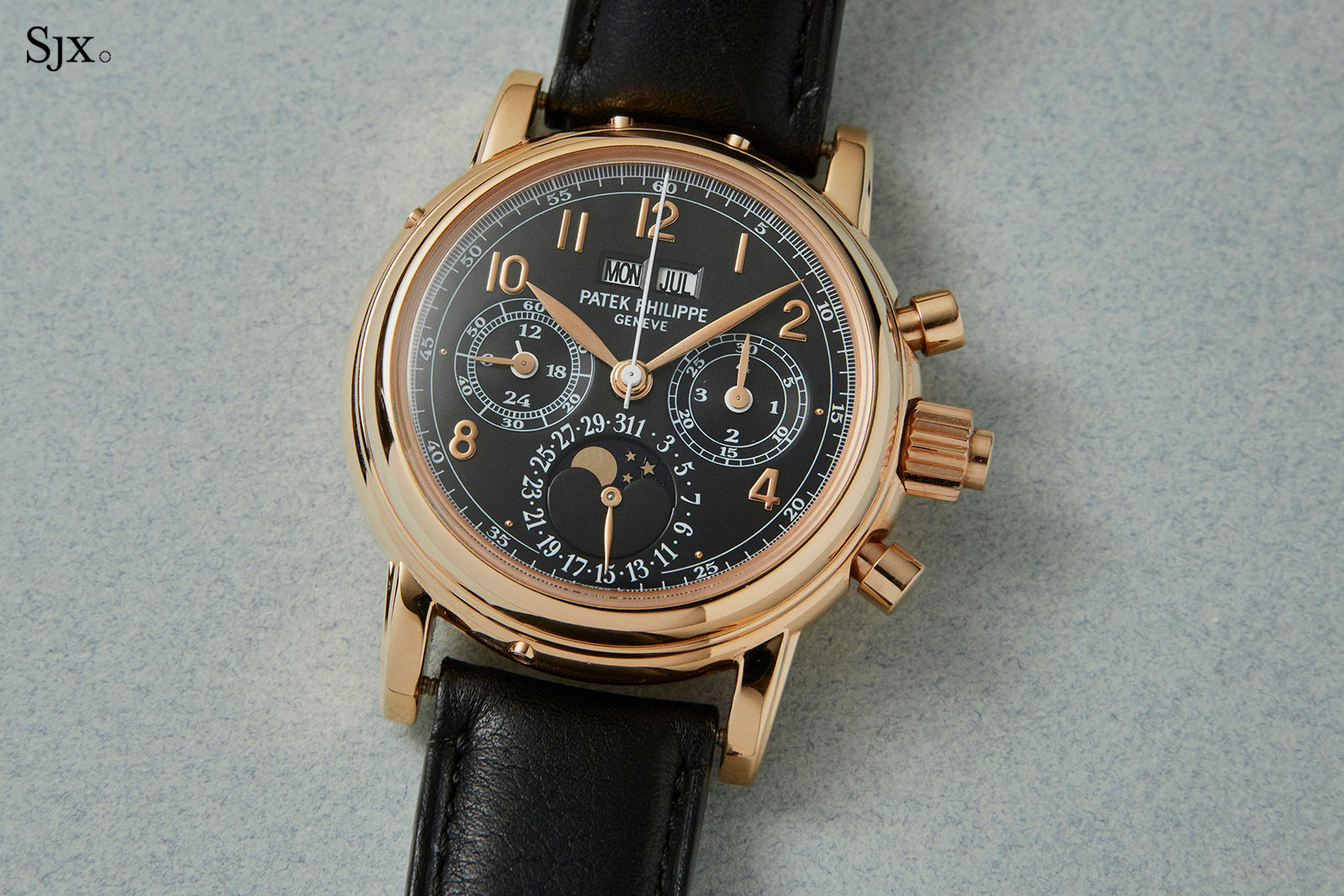
Like all Patek Philippe chronographs of the period, it’s powered by the Lemania-based CH 27 movement, which makes the watch slightly thick looking due to the compact 36.5mm case.
Nevertheless the Lemania-based chronographs are highly regarded by nostalgic collectors, but the ref. 5004 sells for the smallest premium relative to the original retail prices, making it arguably the least appreciated chronograph of that era.
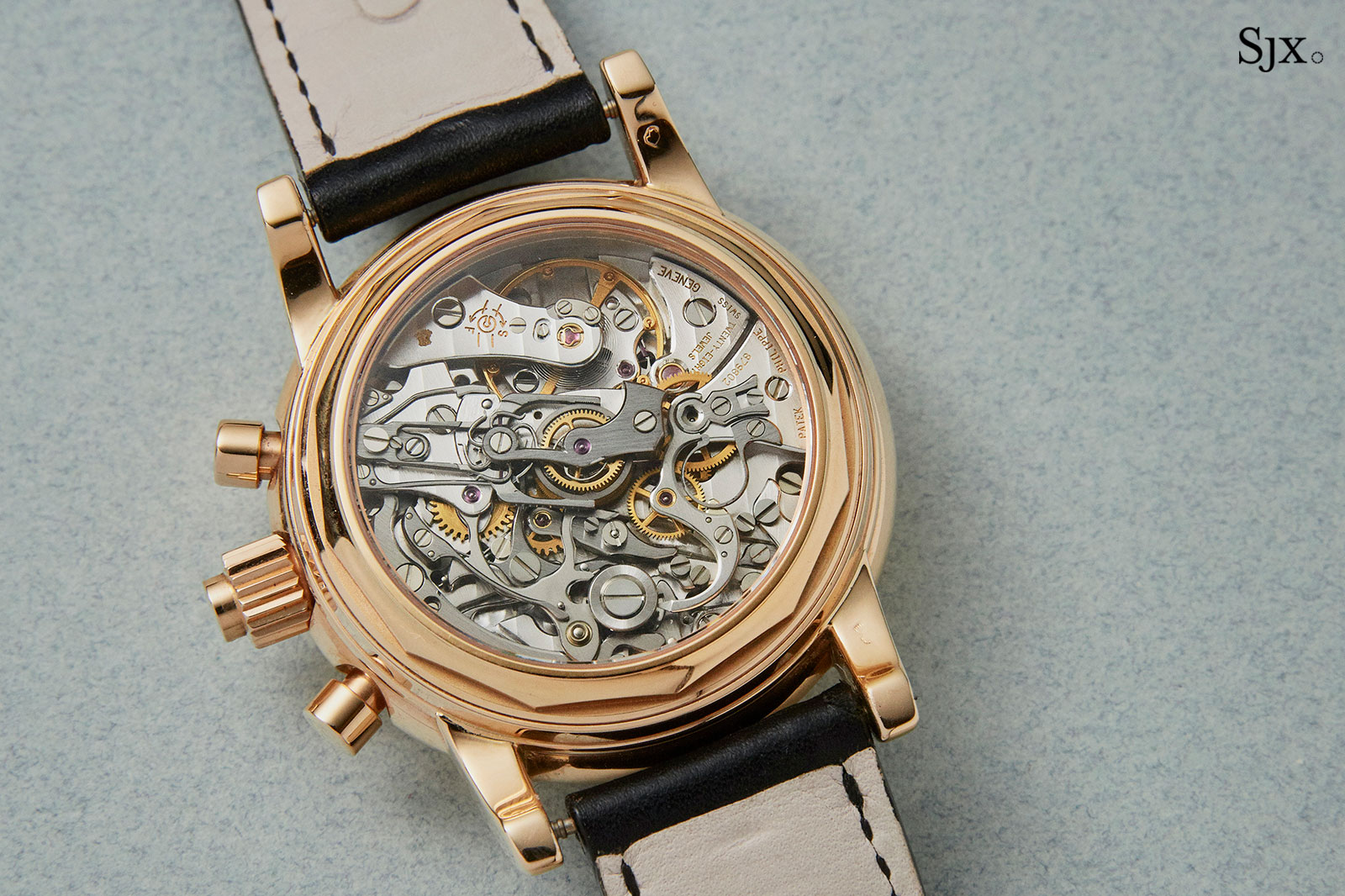
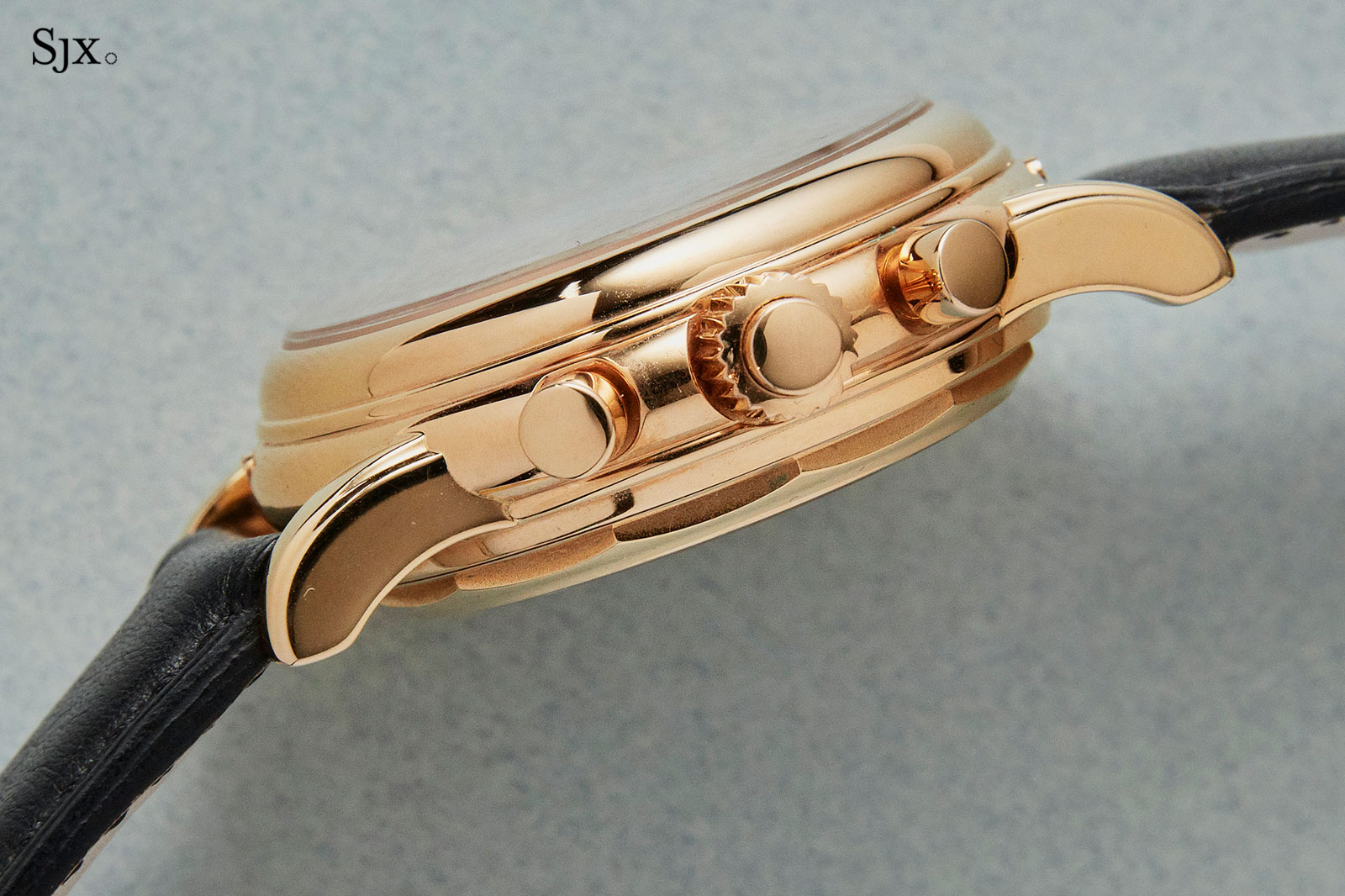
This ref. 5004R is accompanied by its boxes and important spare, solid case back, as well as an archive extract (but not the original certificate). It’s estimated at HK$1.10m to HK$1.80m, or US$150,000 to US$230,000.
Lot 2496 – Patek Philippe ref. 5204P
The successor to the ref. 5004R was the ref. 5204P. It has the exact same combination of complications, but a more modern design as well as the in-house CHR 29 movement.
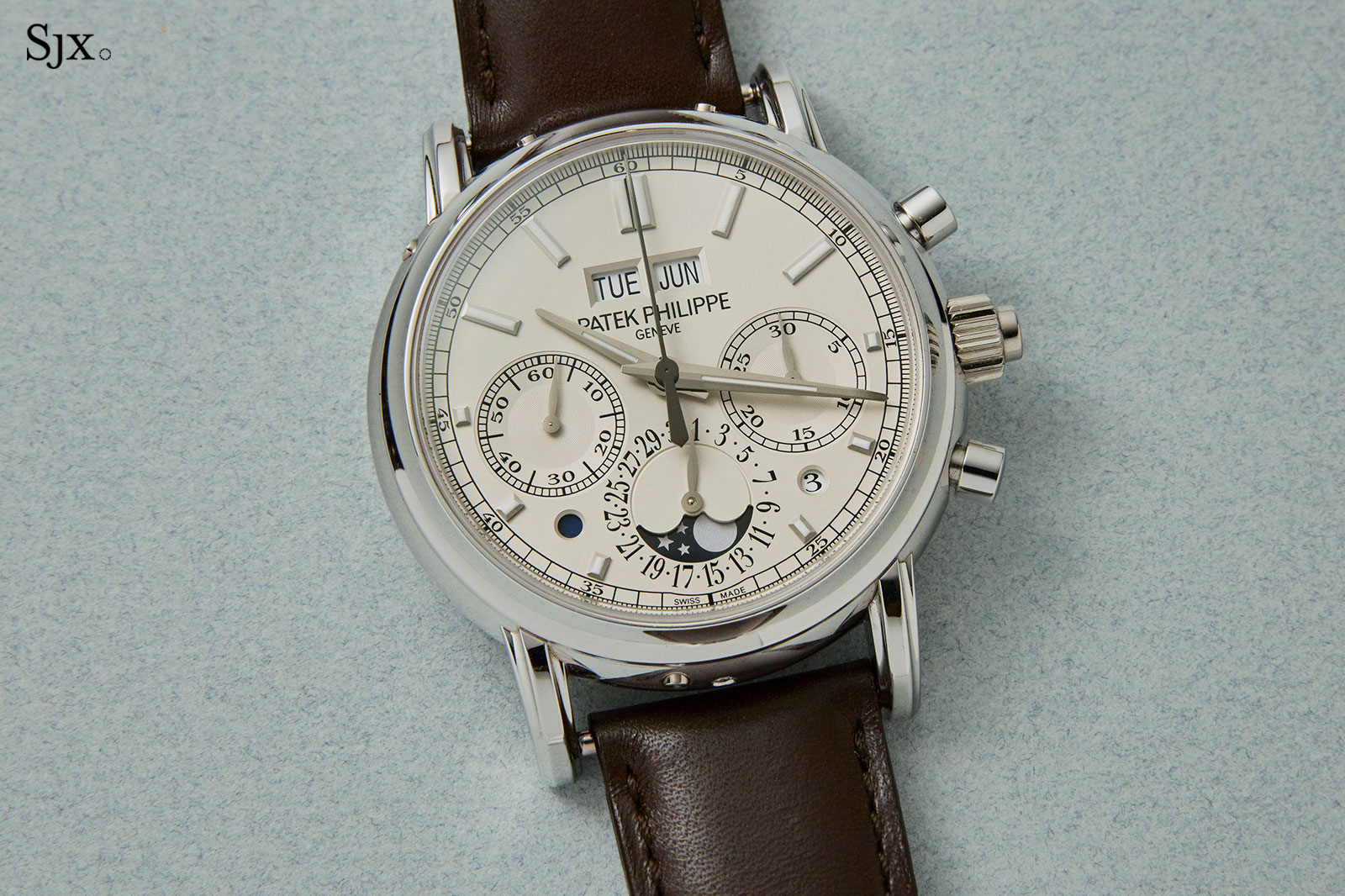
The dial has luminous hands and hour markers, and an unusual upside down moon phase window.
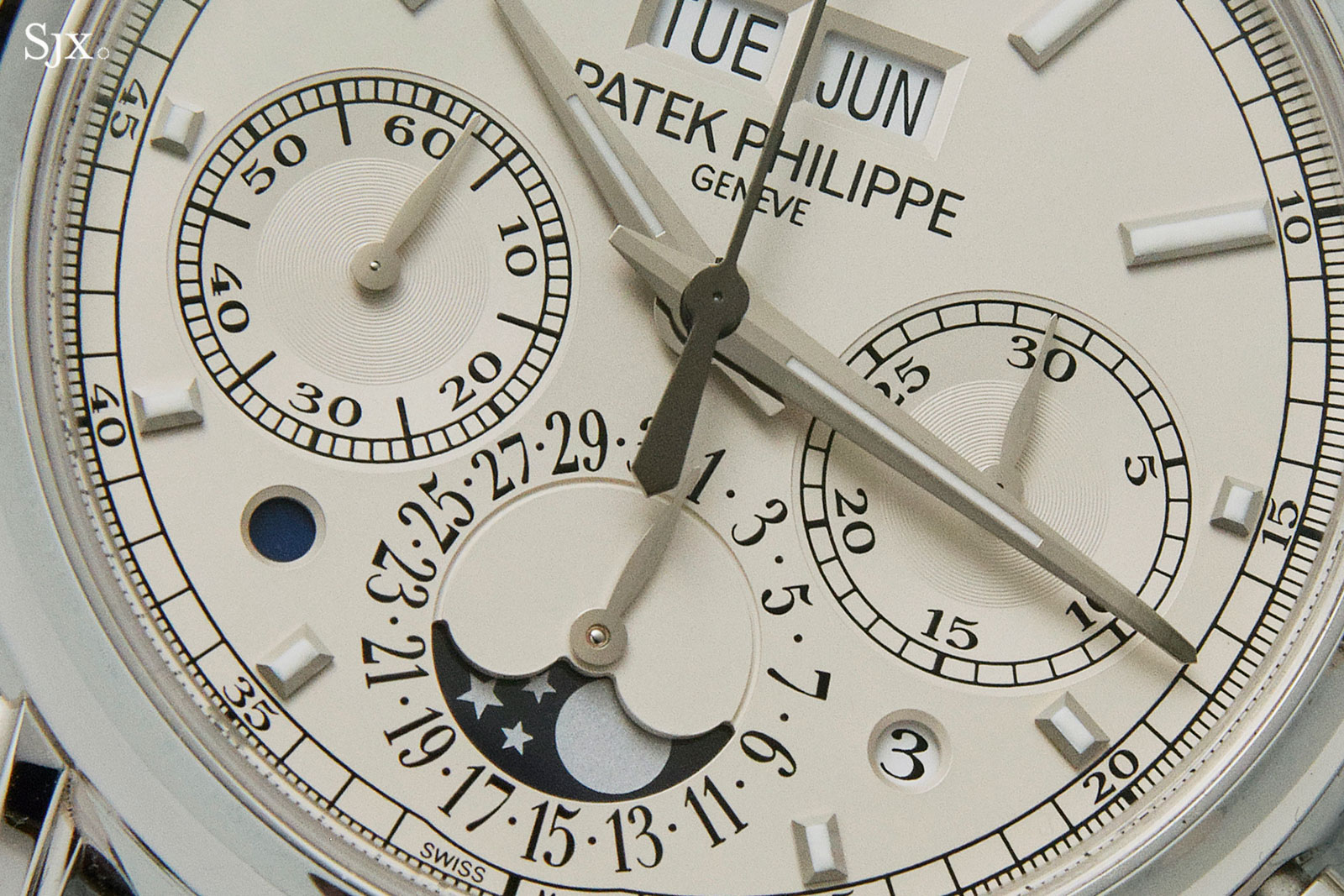
Because its 40mm platinum case is larger than that of the ref. 5004R, the ref. 5204P has slightly better proportions.
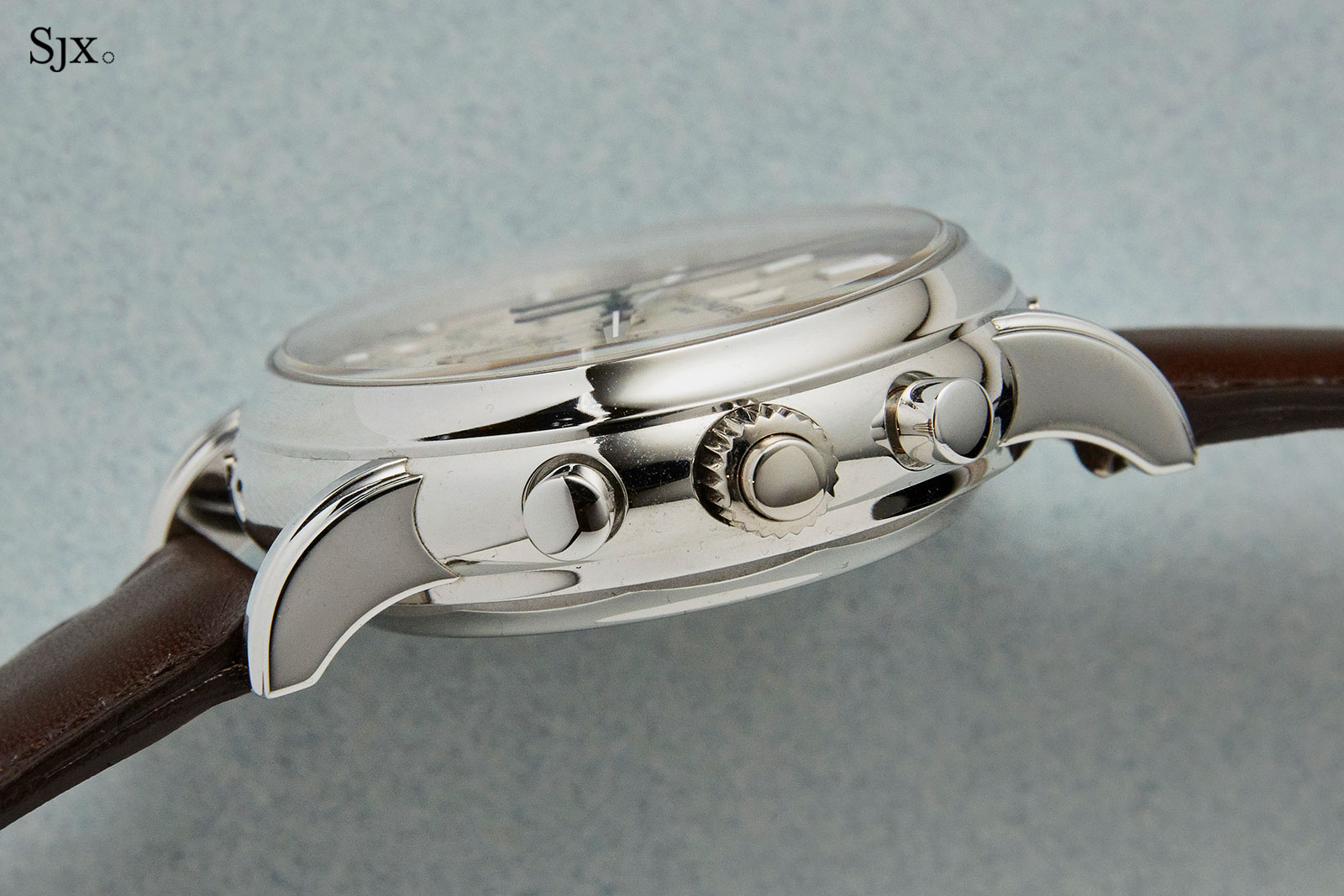
The movement was designed to be robust, making it the most reliable split-seconds chronograph Patek Philippe has ever introduced.
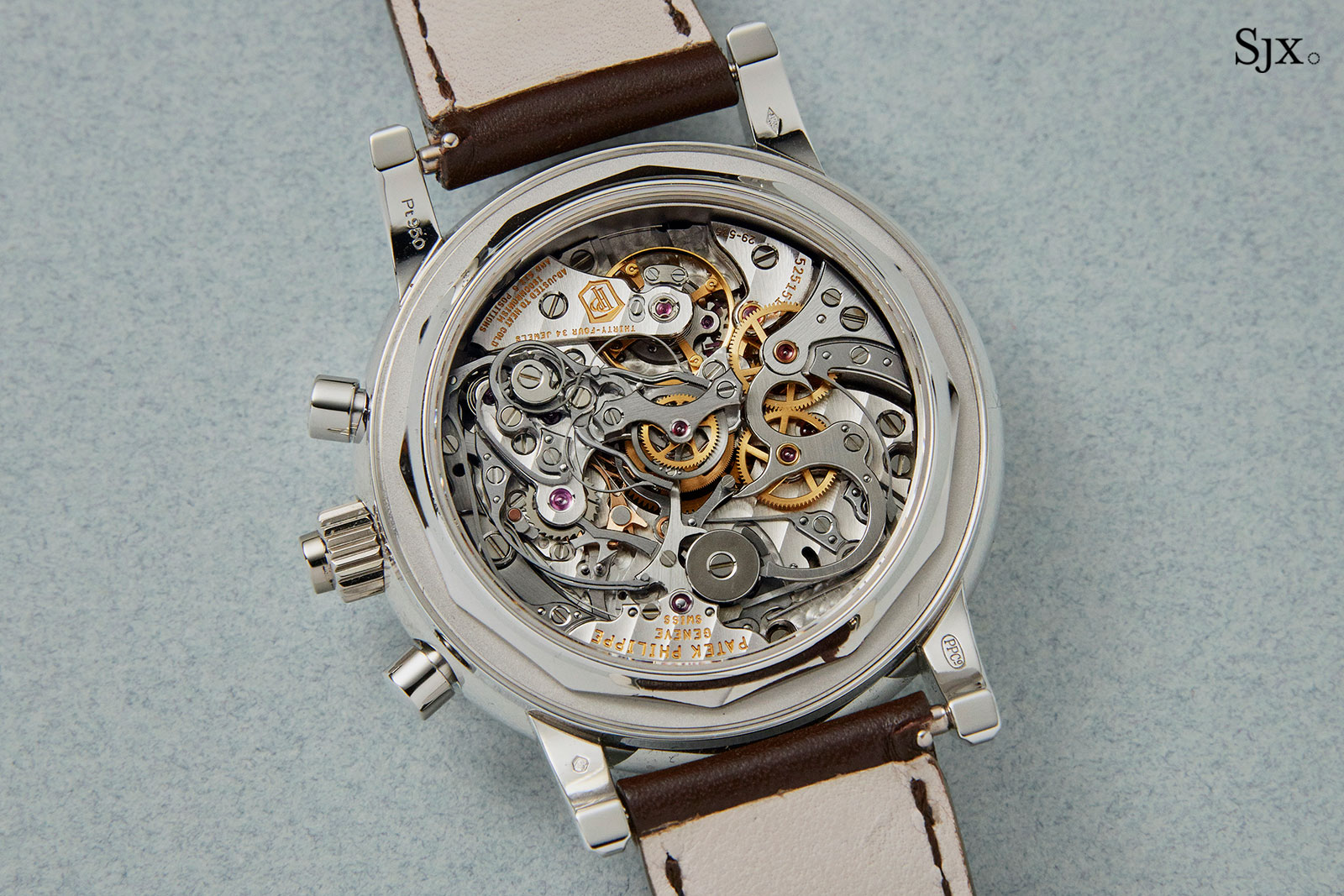
The ref. 5204P is complete with boxes, documents and a solid case back. Its estimate is HK$1.60m to HK$2.40m, or US$210,000 to US$310,000.
Auction and exhibition
Selected lots will be on show in Bangkok on May 17 and 18, at the Renaissance Bangkok Ratchaprasong Hotel.
All the lots will be on display at Hong Kong Convention and Exhibition Centre (HKCEC) in Wanchai from May 25 to 27. The exhibition is open to the public.
The sale starts at 12pm on May 28, at the sale room in the same venue. The full catalogue, as well as absentee bidding, can be found here.
This was brought to you by Christie’s.
Back to top.
